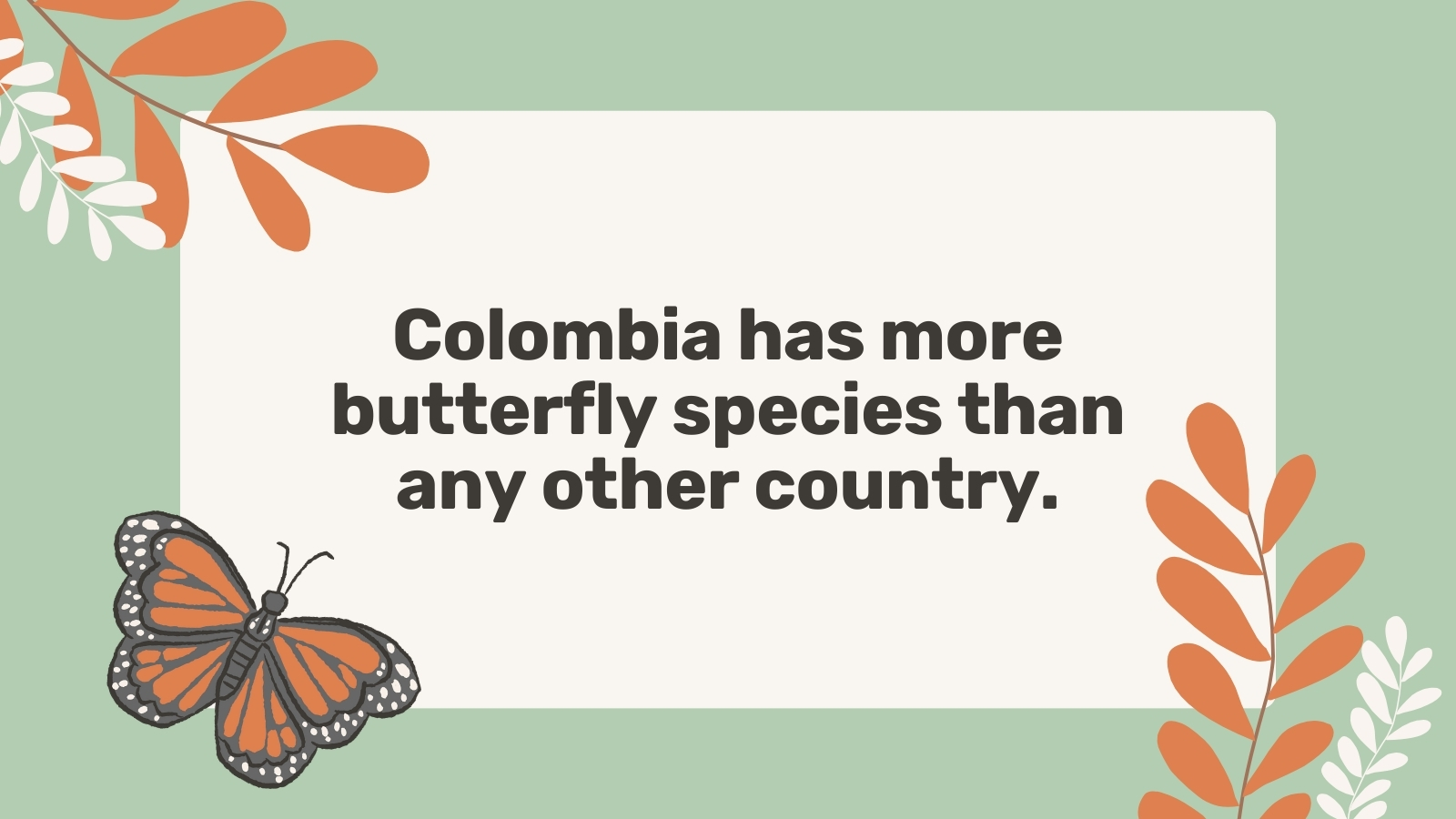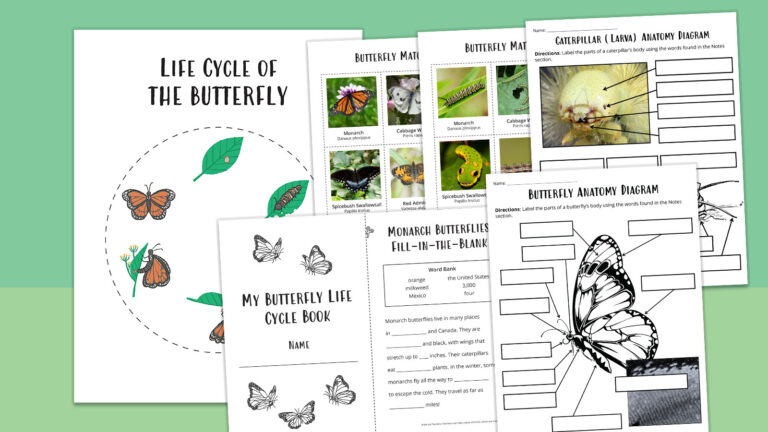Butterflies are one of the most captivating sights in nature, and they’re fascinating too! Share these facts about butterflies to show your students just how amazing these insects can be.
Our Favorite Facts About Butterflies
1. The Queen Alexandra’s birdwing is the world’s largest butterfly.

It lives in the forests of Papua New Guinea and has a wingspan up to 10 inches wide and a body that’s more than 3 inches long.
2. The western pygmy blue butterfly is the smallest butterfly in the world.

Its wingspan is only half an inch, about the size of a thumbnail. It lives in the western United States.
3. There are about 17,500 species of butterflies in the world.
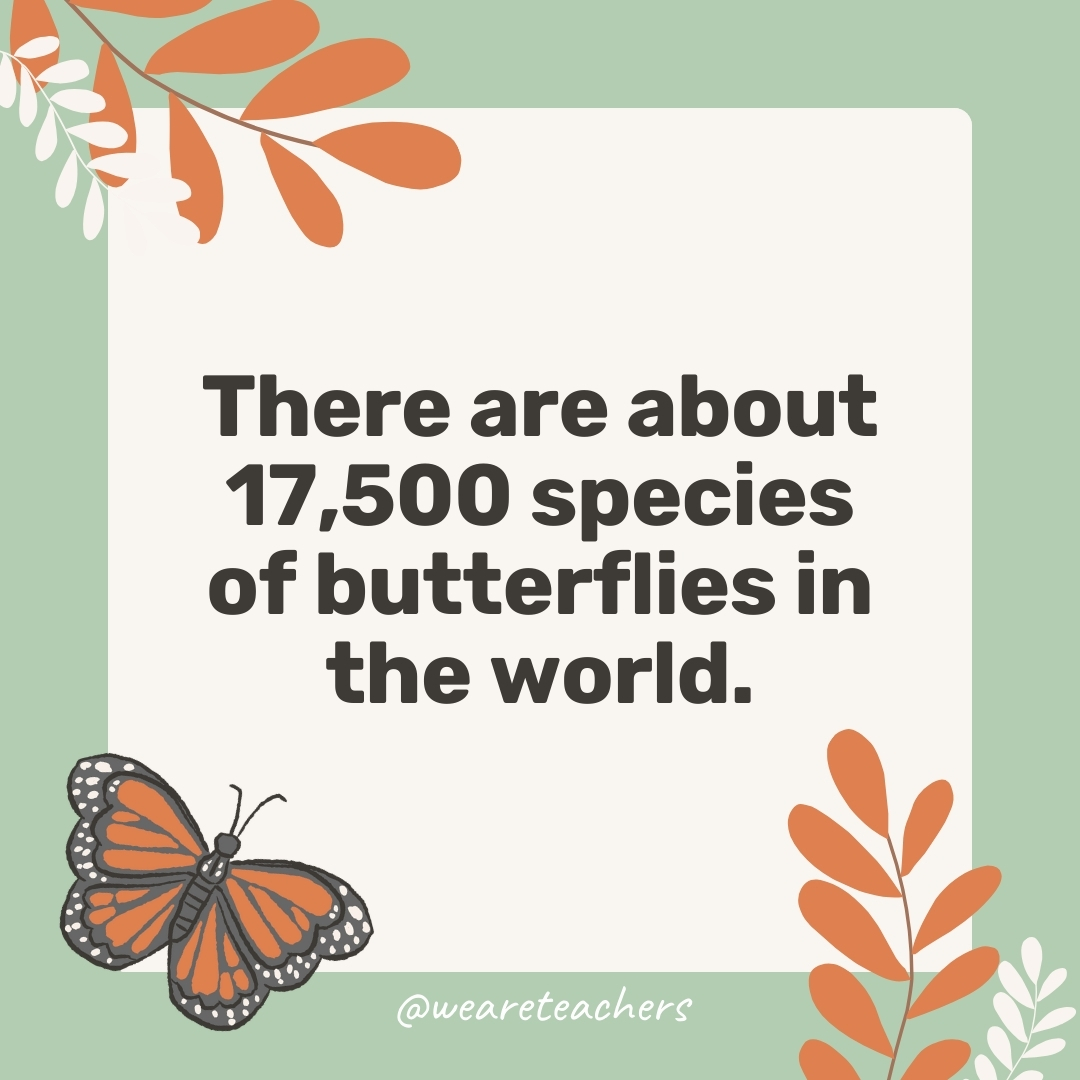
In the United States alone, you’ll find about 750 butterfly species.
4. Skippers are the fastest of all the butterflies.

They can fly faster than 35 miles per hour.
5. Butterflies taste with their feet.
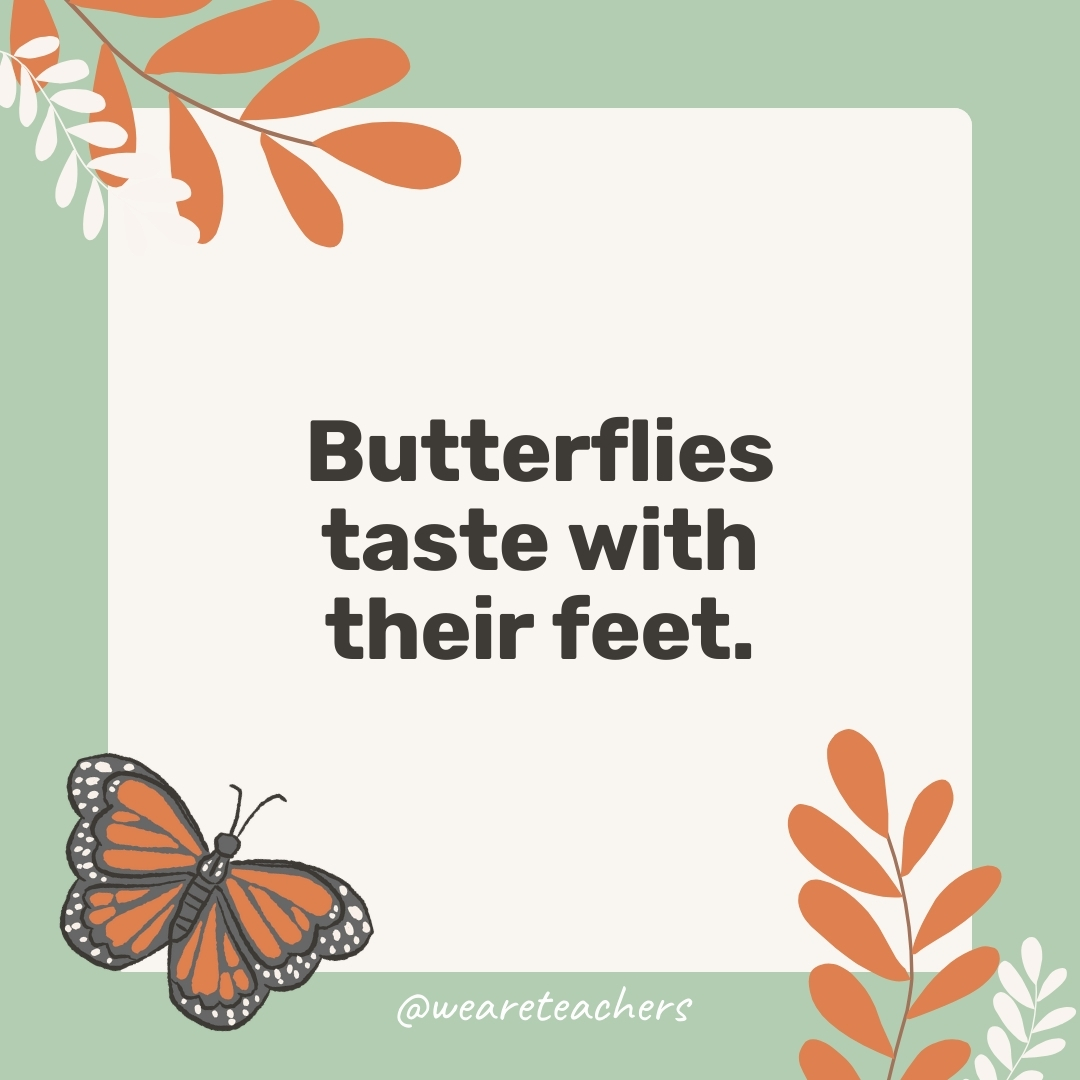
The taste receptors on their feet let them quickly determine if a plant is the right one for their caterpillars.
6. There are butterflies on every continent except one.

Not surprisingly, there are no butterflies in Antarctica.
7. Colombia has more butterfly species than any other country.
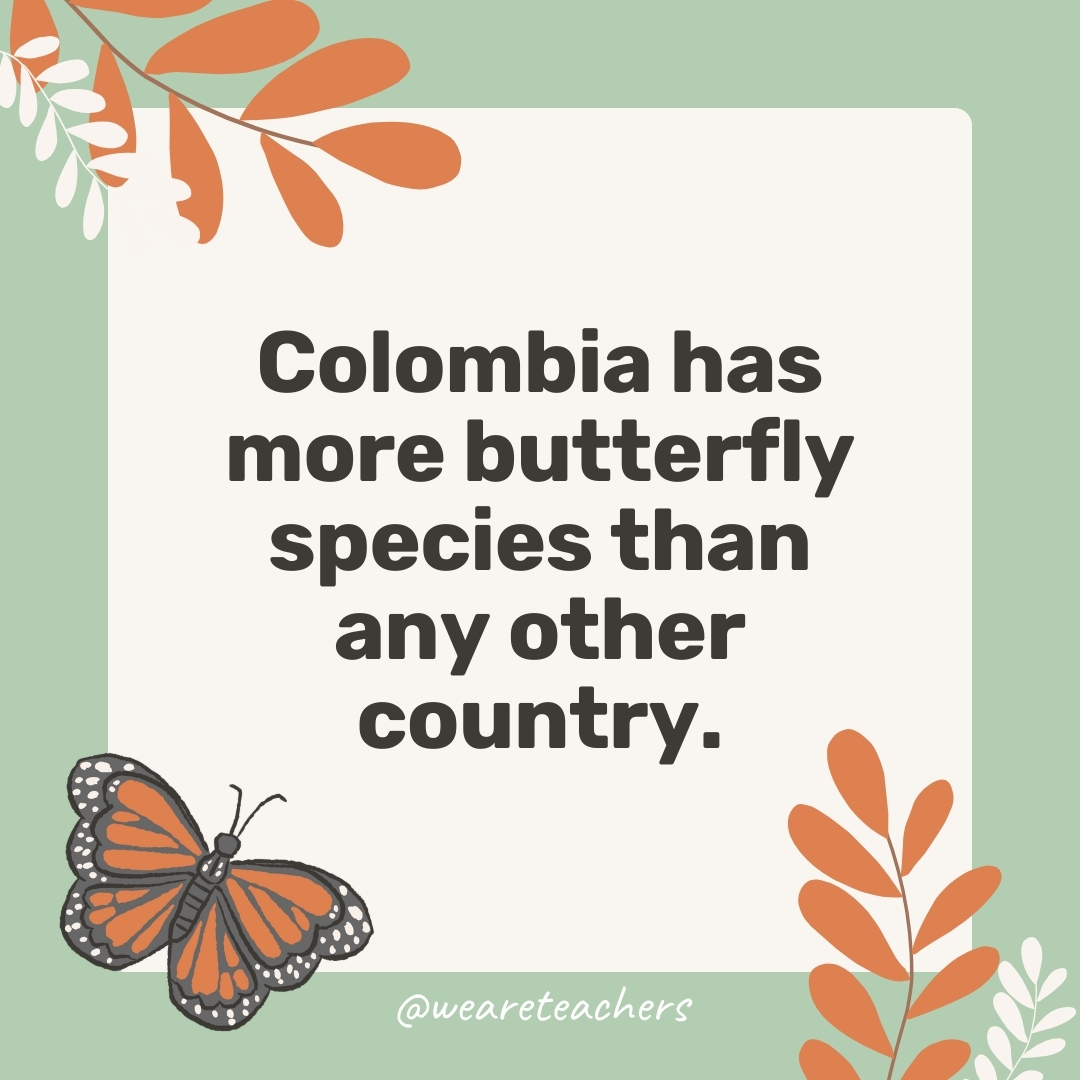
A study in 2021 counted 3,642 butterfly species in Colombia.
8. Most butterflies live for about 2 to 4 weeks.
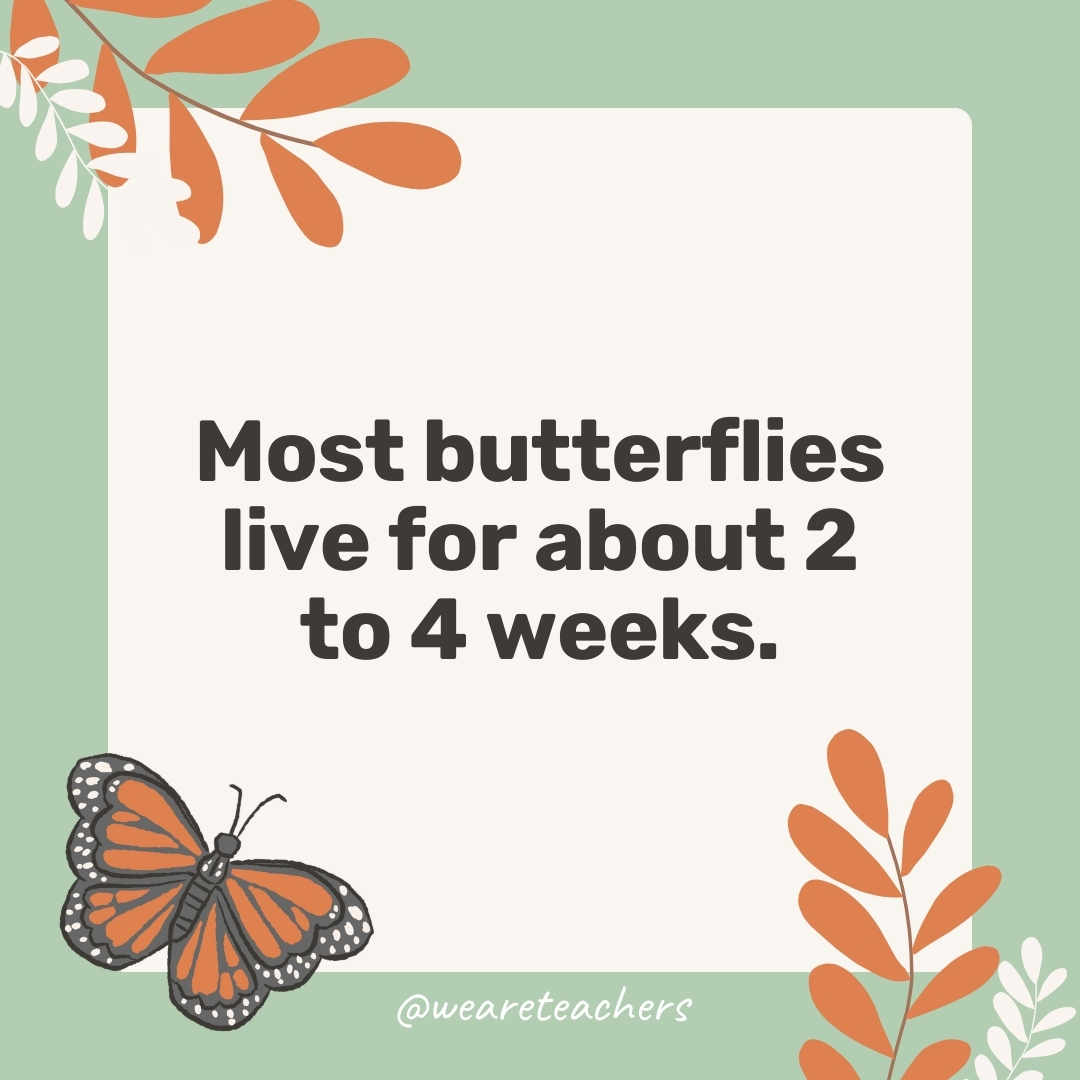
This average lifespan doesn’t include the time they spend eating as caterpillars and undergoing metamorphosis.
9. Monarch butterflies can live 8 months or more.
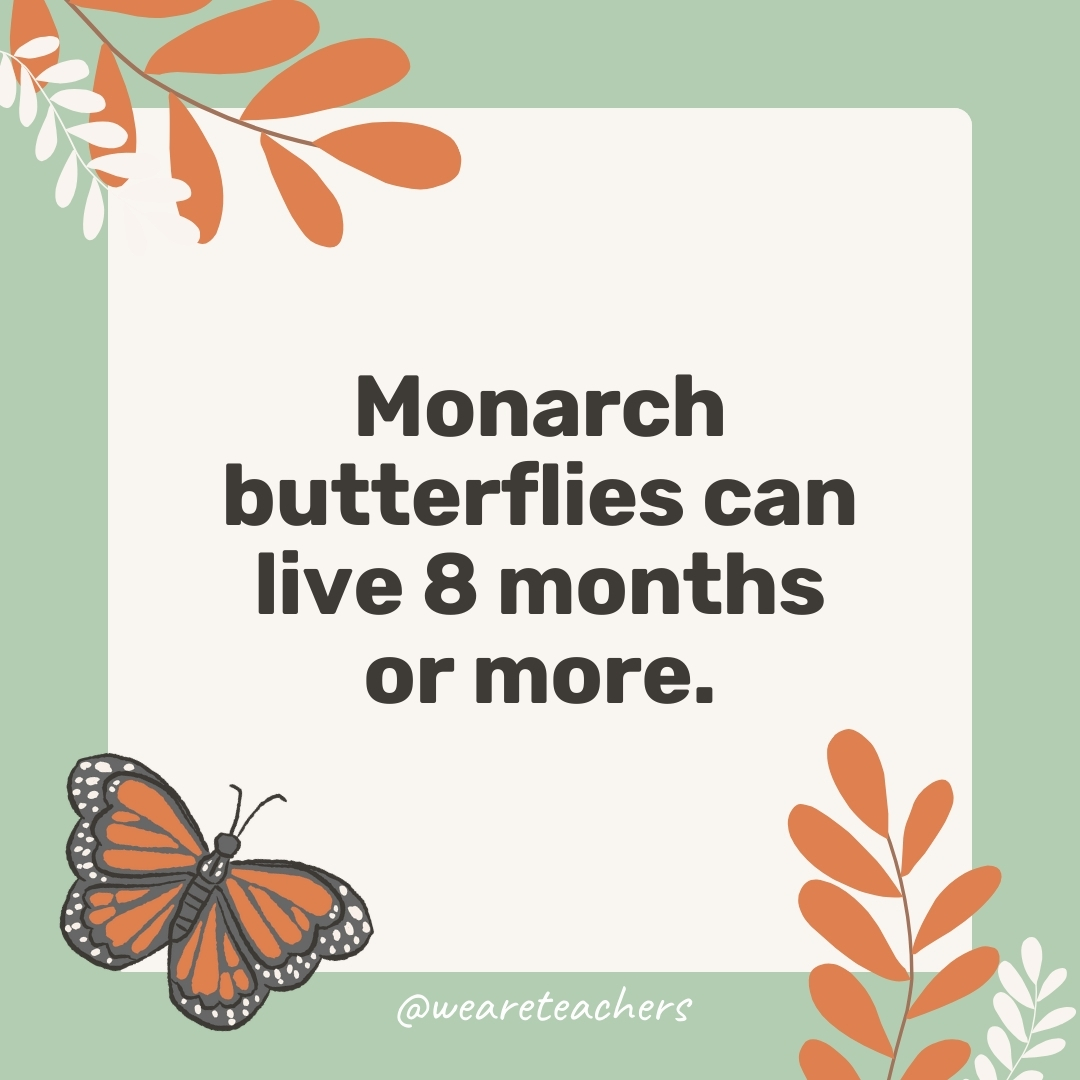
The migratory “supergeneration” of monarch butterflies hibernates for many months in Mexico during the winter.
10. During migration, monarchs travel 50 miles a day.
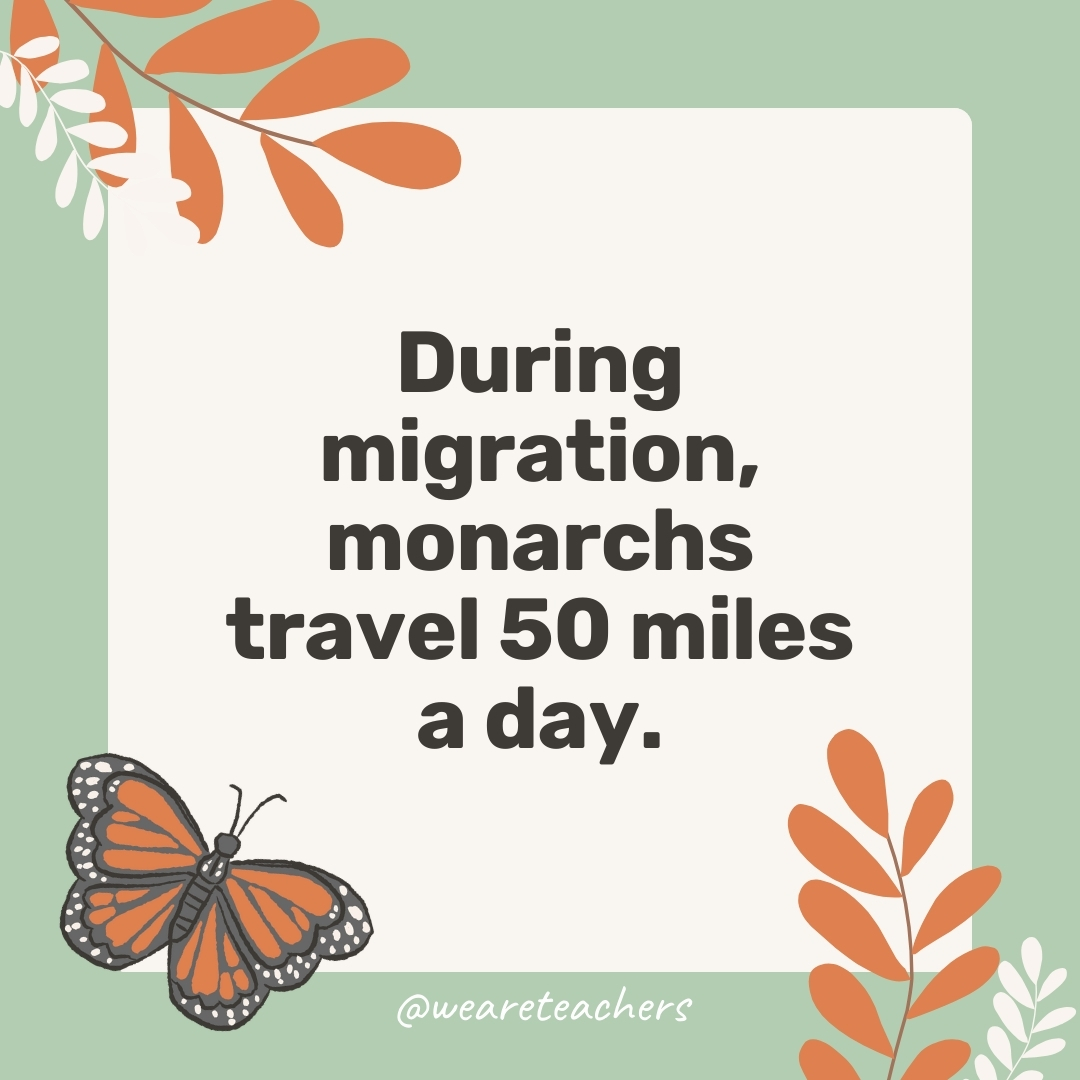
Their journey to Mexico can be as long as 3,000 miles.
11. Migratory monarchs spend the winter on mountaintops in Mexico.
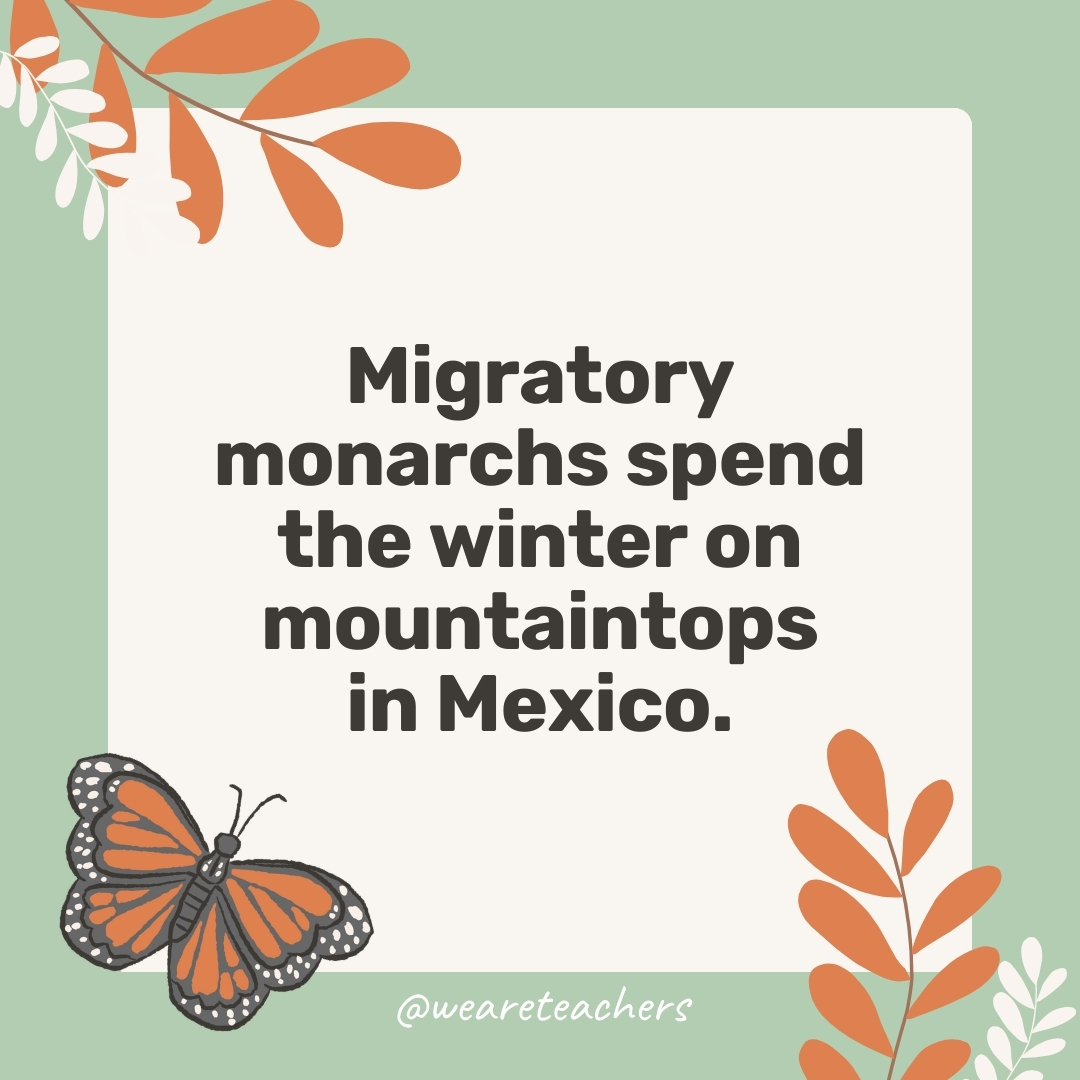
They gather in oyamel fir forests in numbers so huge their weight sometimes breaks tree branches.
12. Butterflies need to be warm to fly.
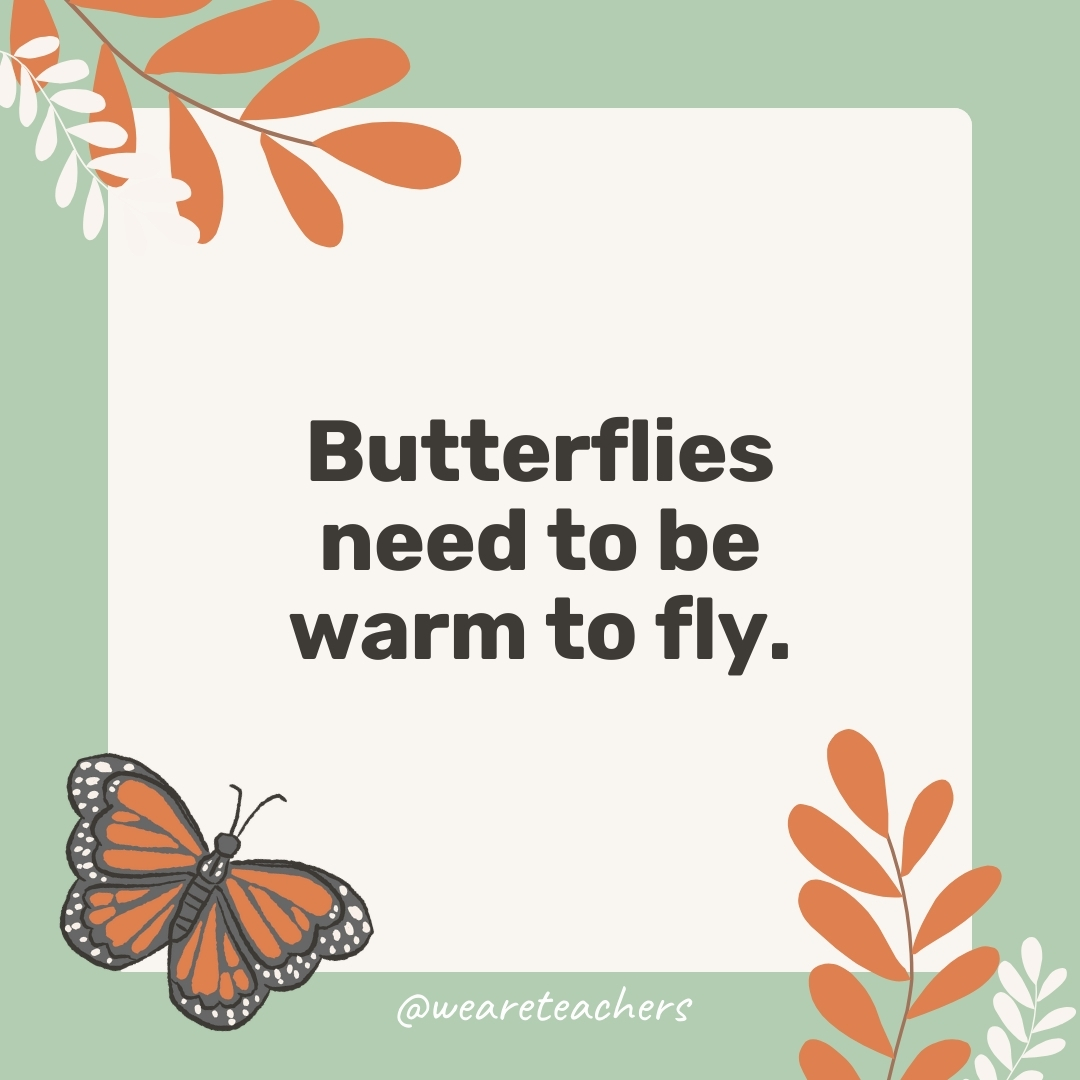
They are ectothermic and use the sun to warm their bodies to about 86 degrees Fahrenheit before they can fly.
13. Sometimes butterflies shiver to warm up.
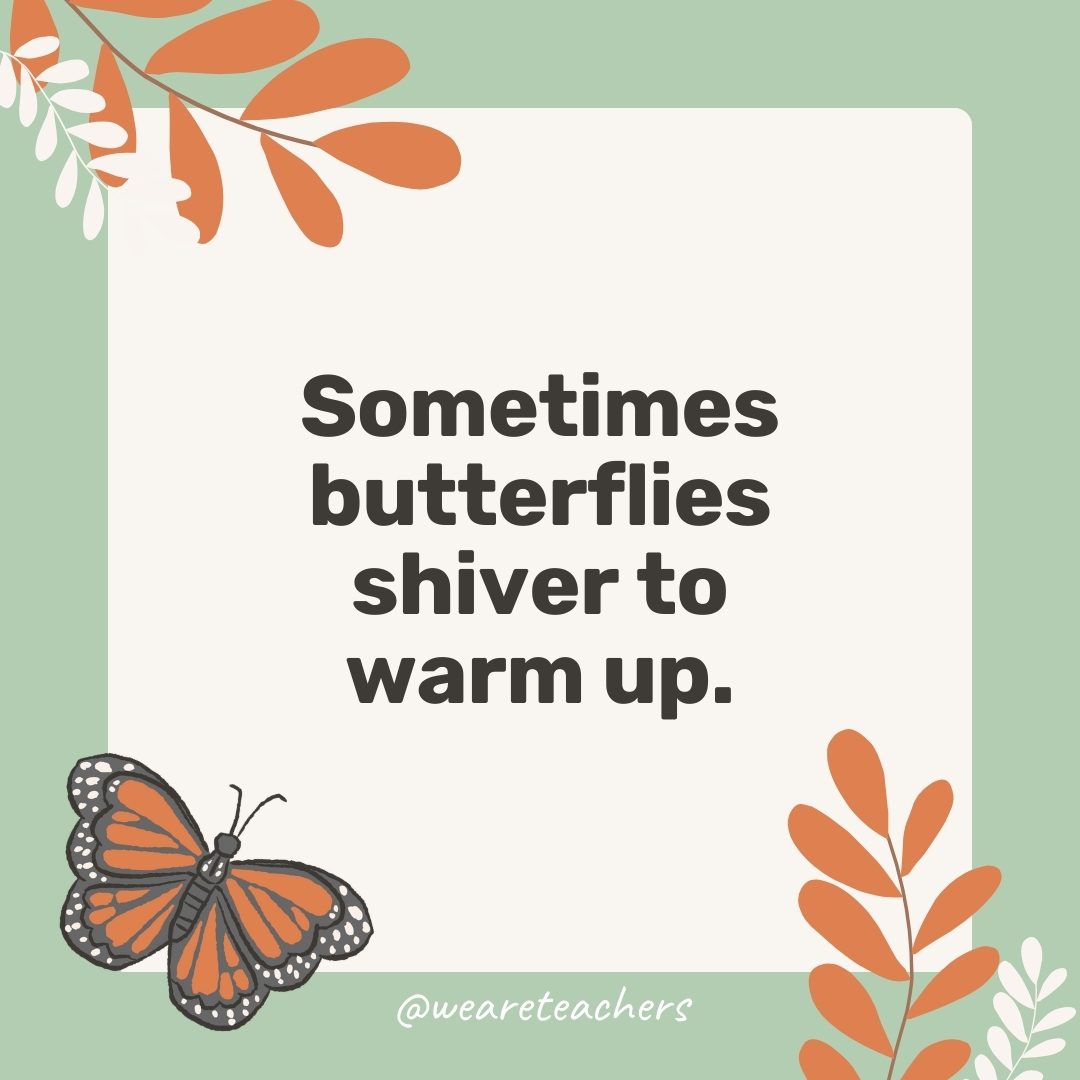
To warm up more quickly, butterflies may shiver their wings to warm their body muscles by a few degrees.
14. Butterflies drink their meals.
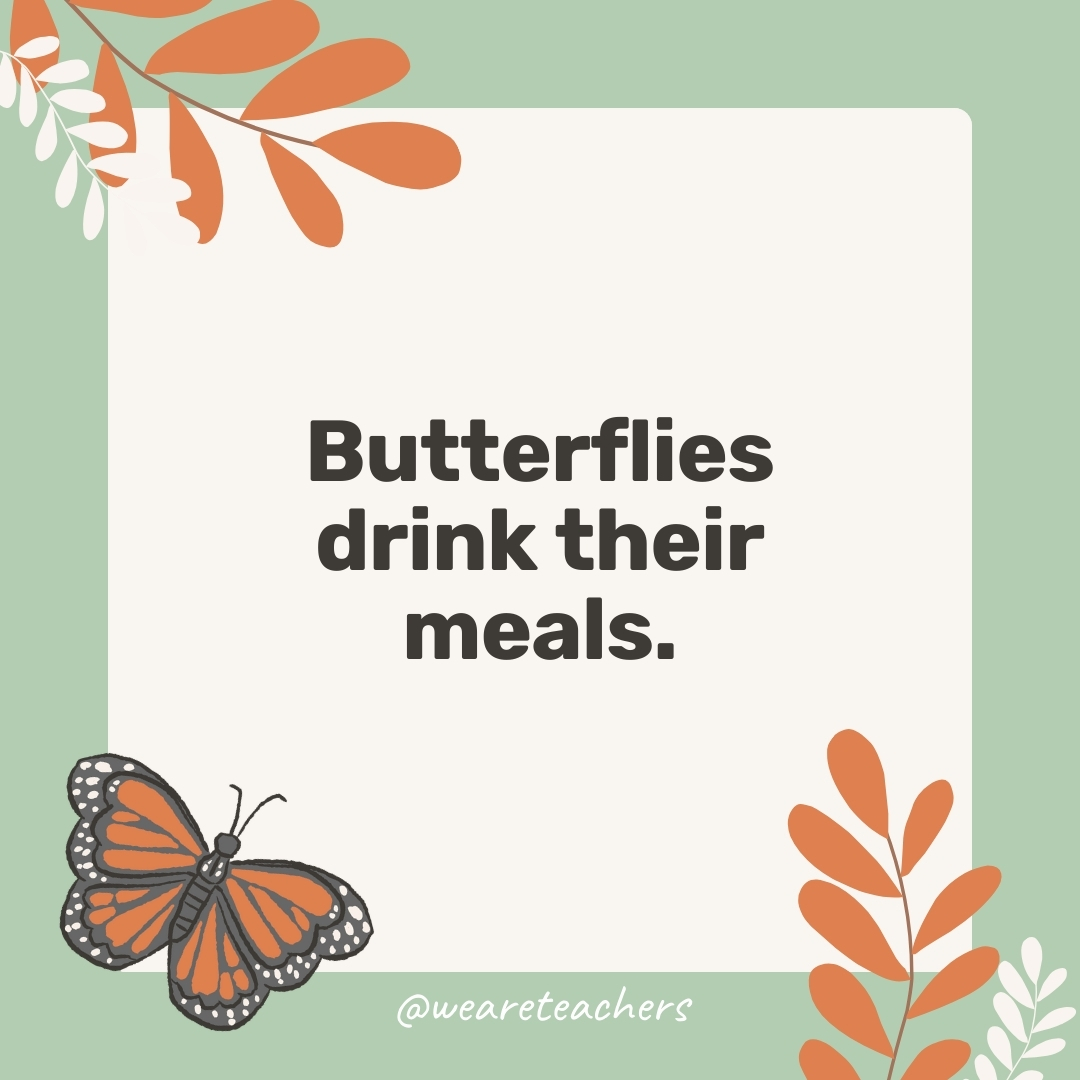
They mainly eat sugary nectar from flowers, using their straw-like proboscis.
15. Some species of butterflies prefer fruit to flowers.
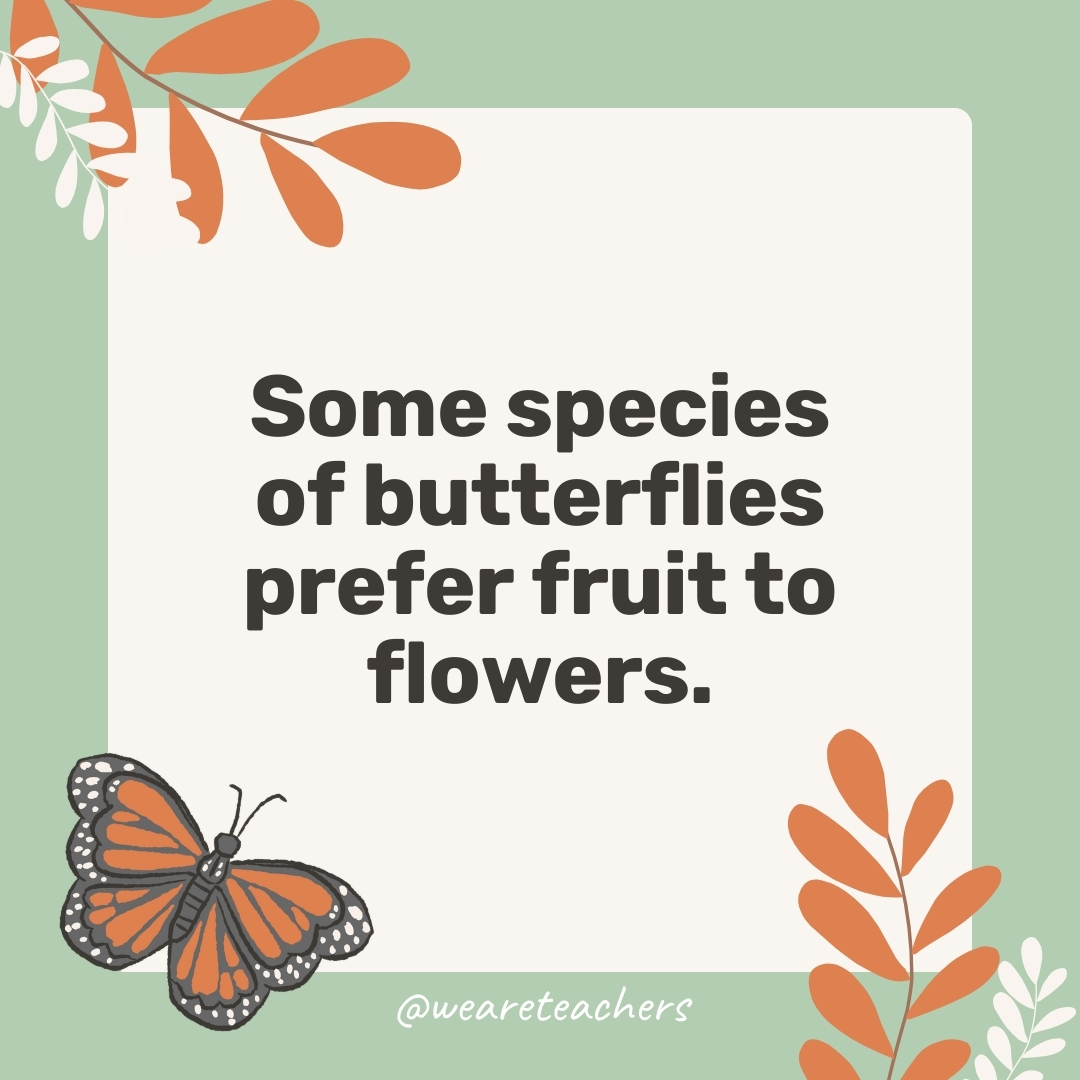
Others like to drink sap from trees, especially in spring.
16. Butterflies don’t bite.
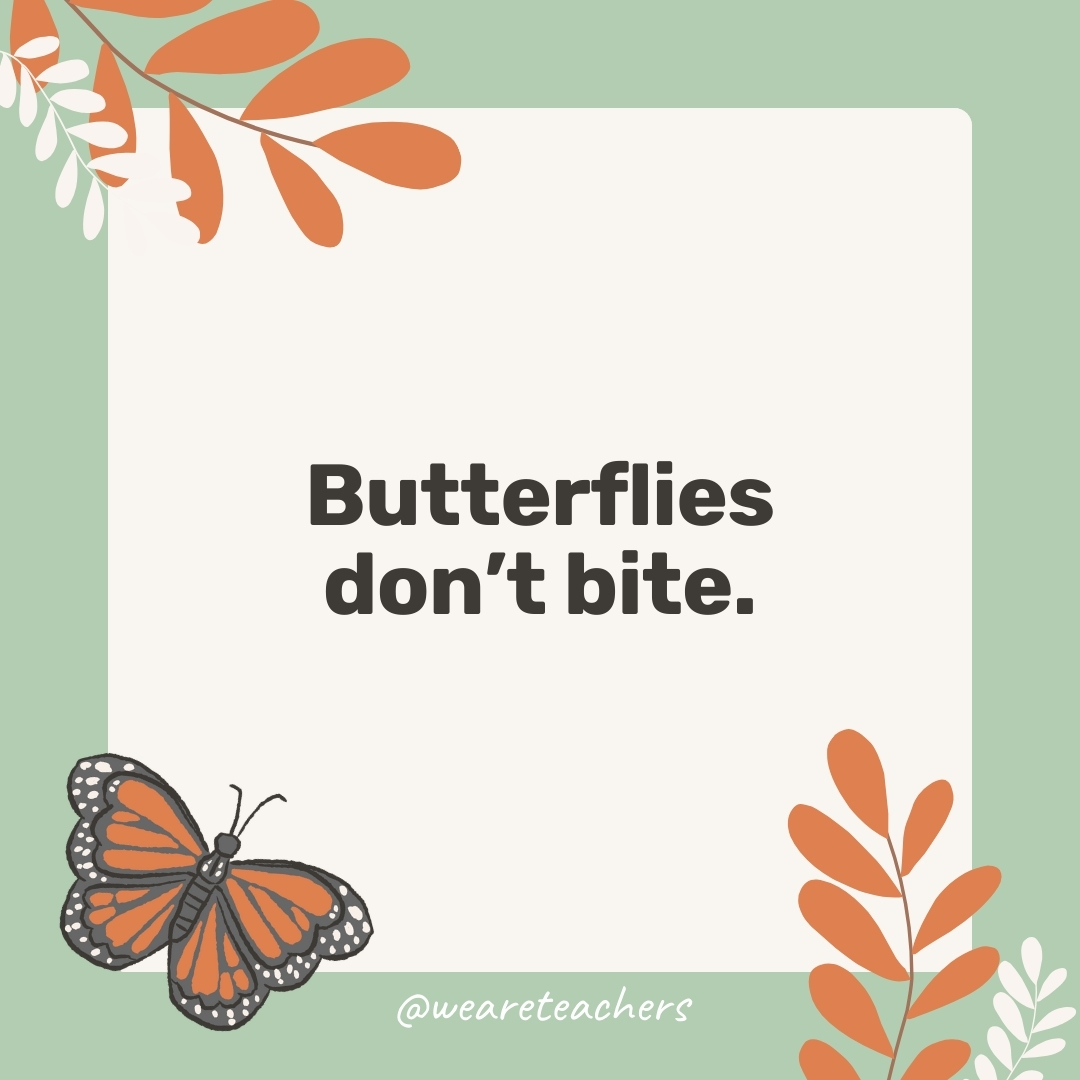
These insects don’t have mouths or teeth, and they don’t use their proboscis to pierce human skin.
17. Sometimes butterflies drink human sweat.
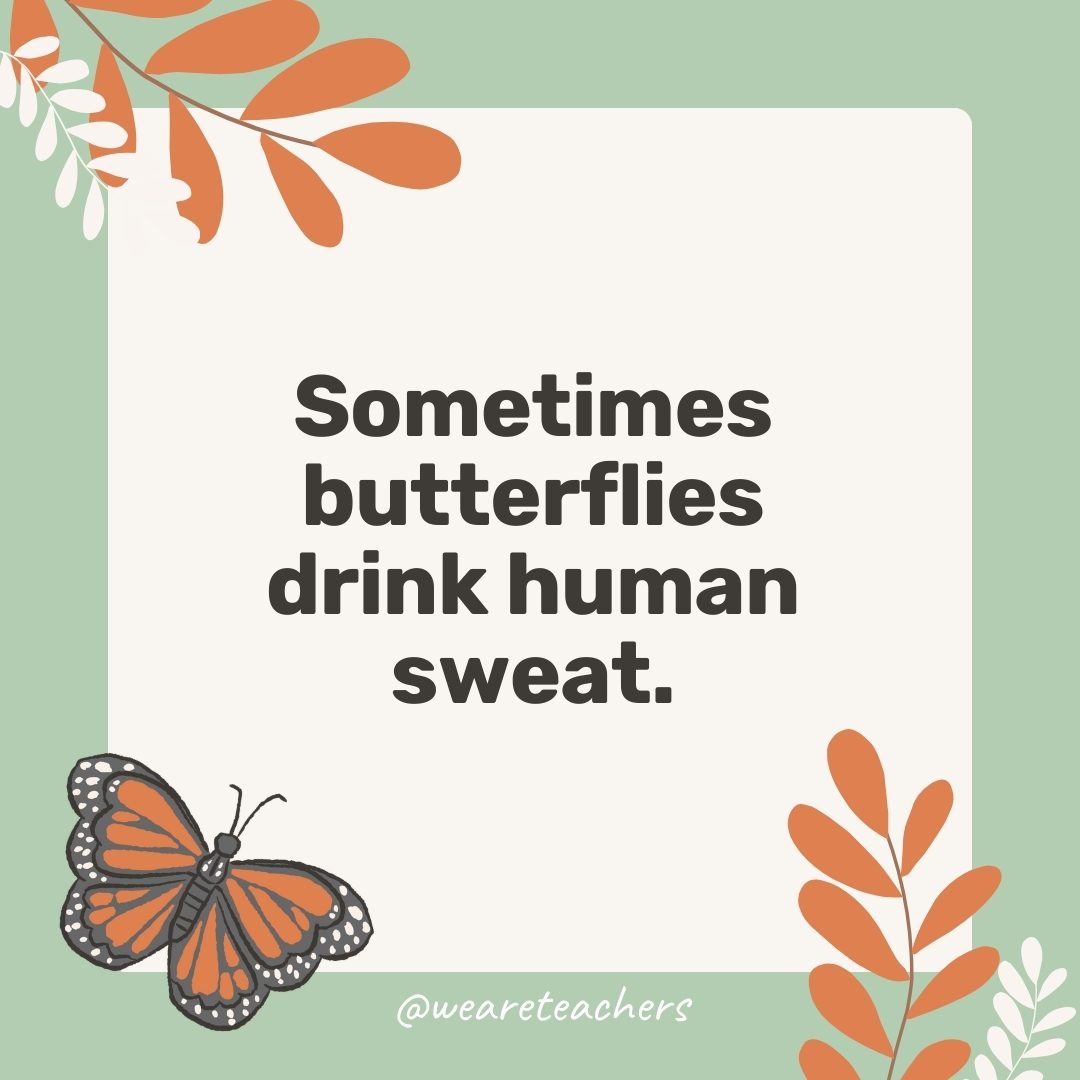
They need the salts found in sweat and occasionally land on people’s heads or exposed skin to sip it up. They also drink water from mud puddles.
18. Butterflies also feed on dung and carrion.
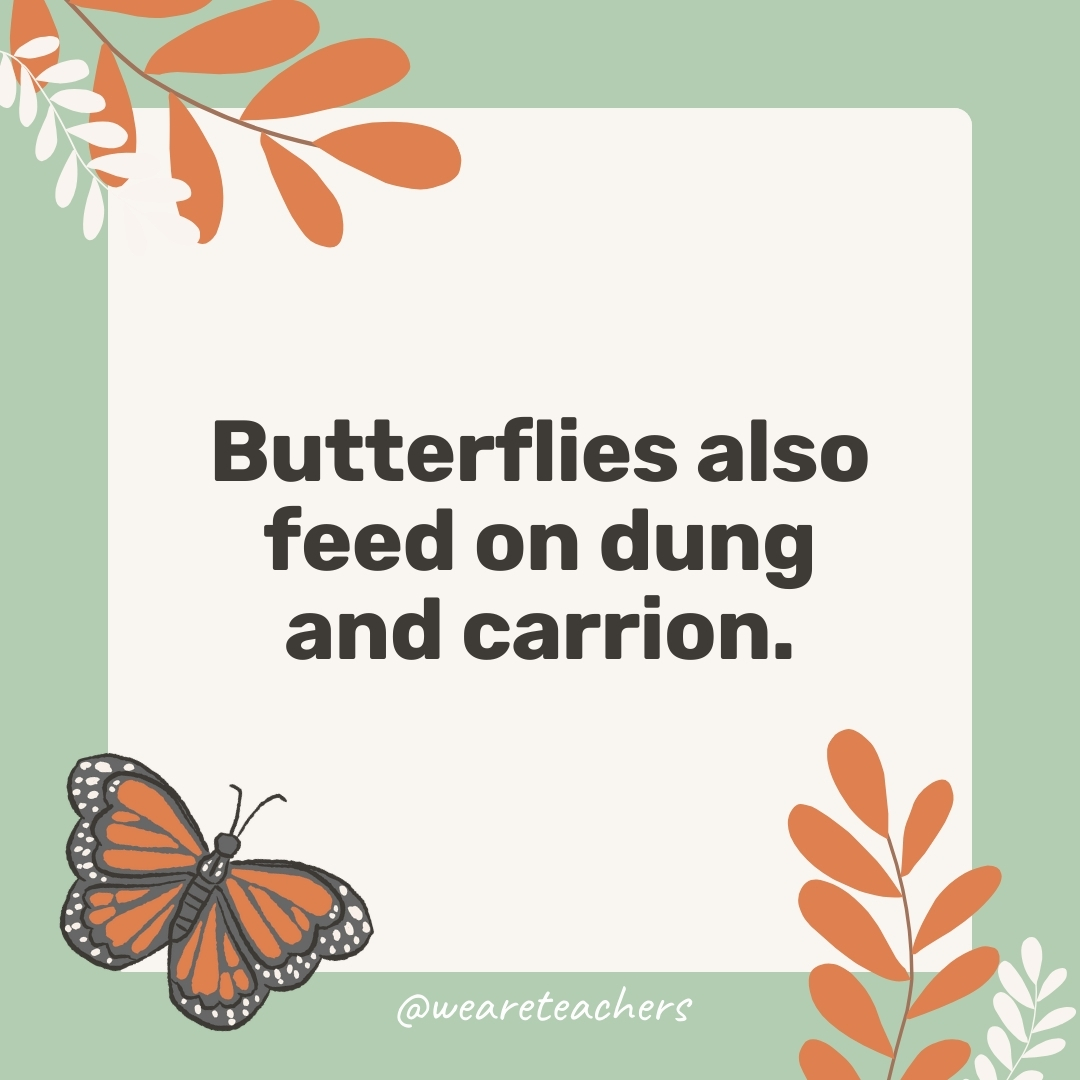
They sometimes land in swarms on animal poop, and dead animals too, looking for salts and minerals.
19. Butterflies lay eggs.
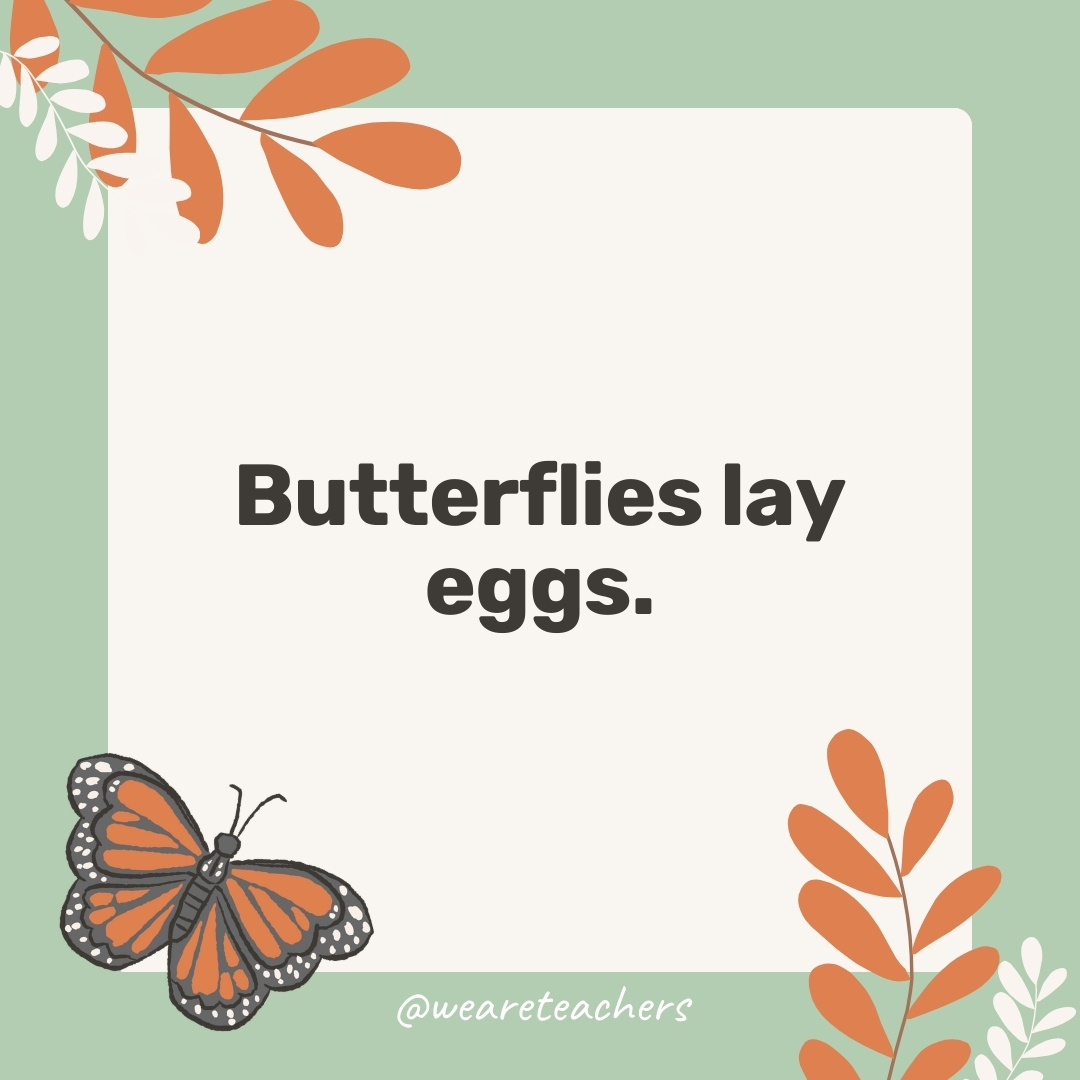
A female butterfly can lay 300 or more eggs in her short life.
20. Each type of caterpillar eats specific plants called host plants.
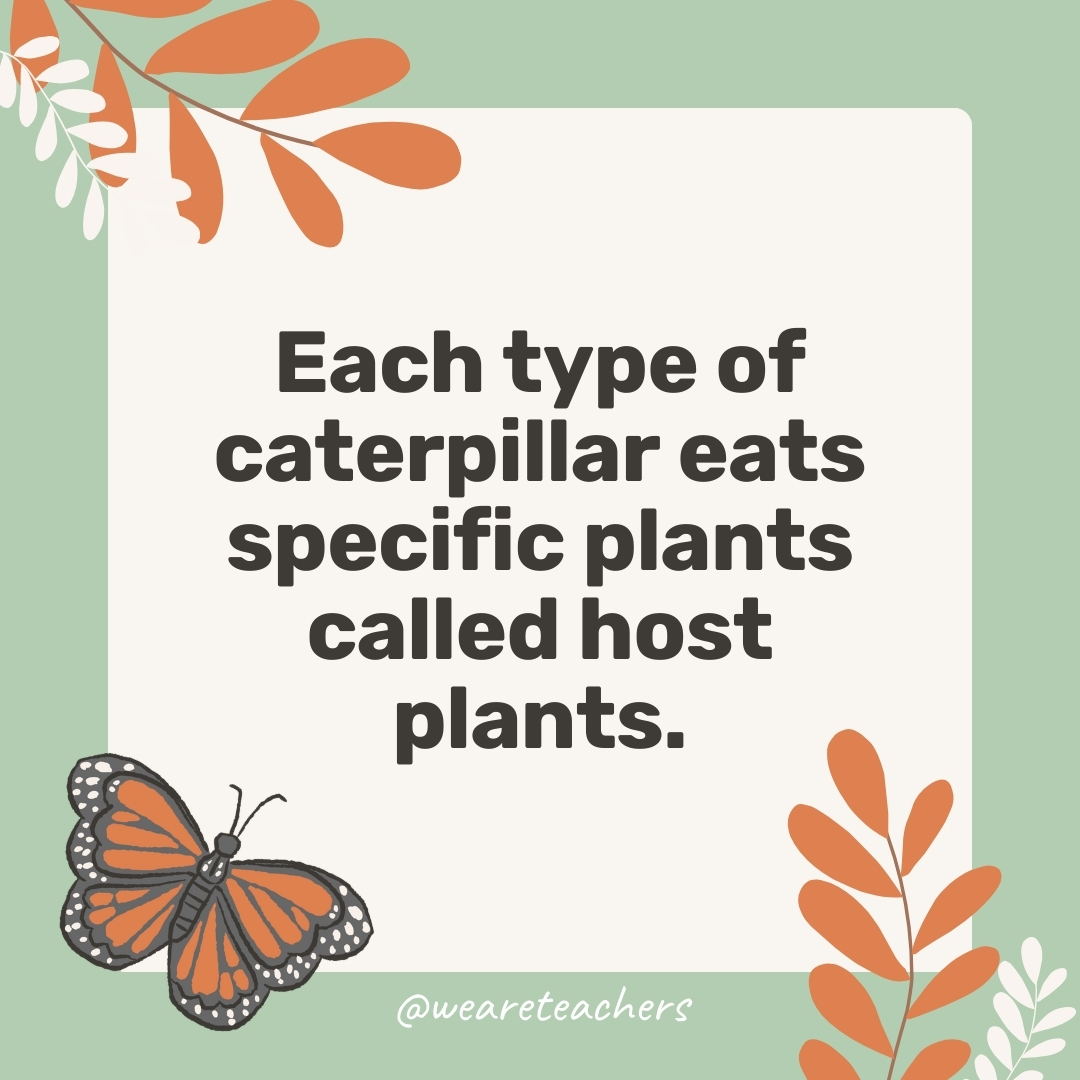
Monarch caterpillars only eat milkweed, while species like painted ladies eat dozens of types of plants.
21. Caterpillar poop is called “frass.”

Adult butterflies don’t poop at all.
22. Most caterpillars spend about 2 weeks eating and growing.
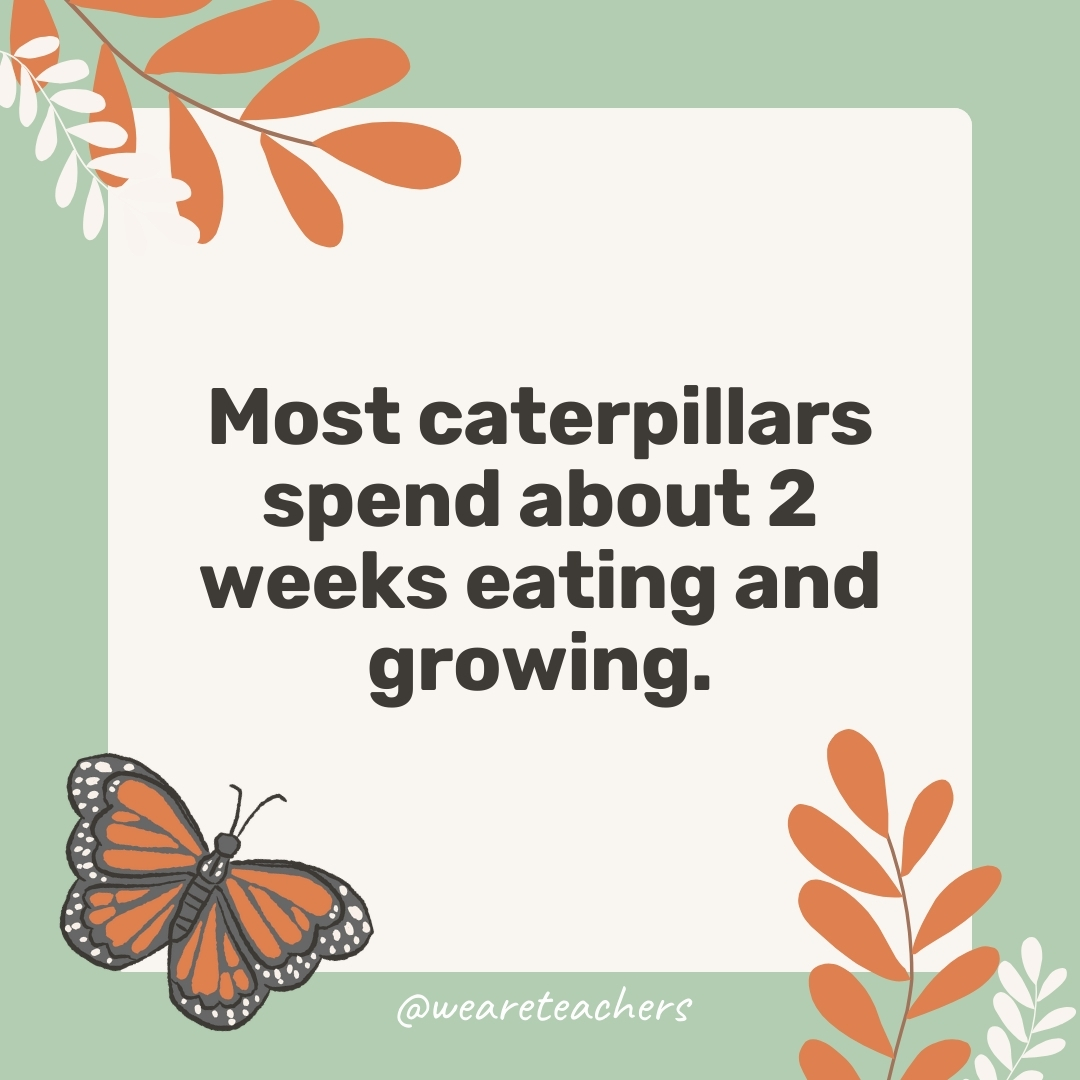
Along the way, they outgrow and shed their skin several times.
23. Butterflies don’t make cocoons, they make chrysalises.
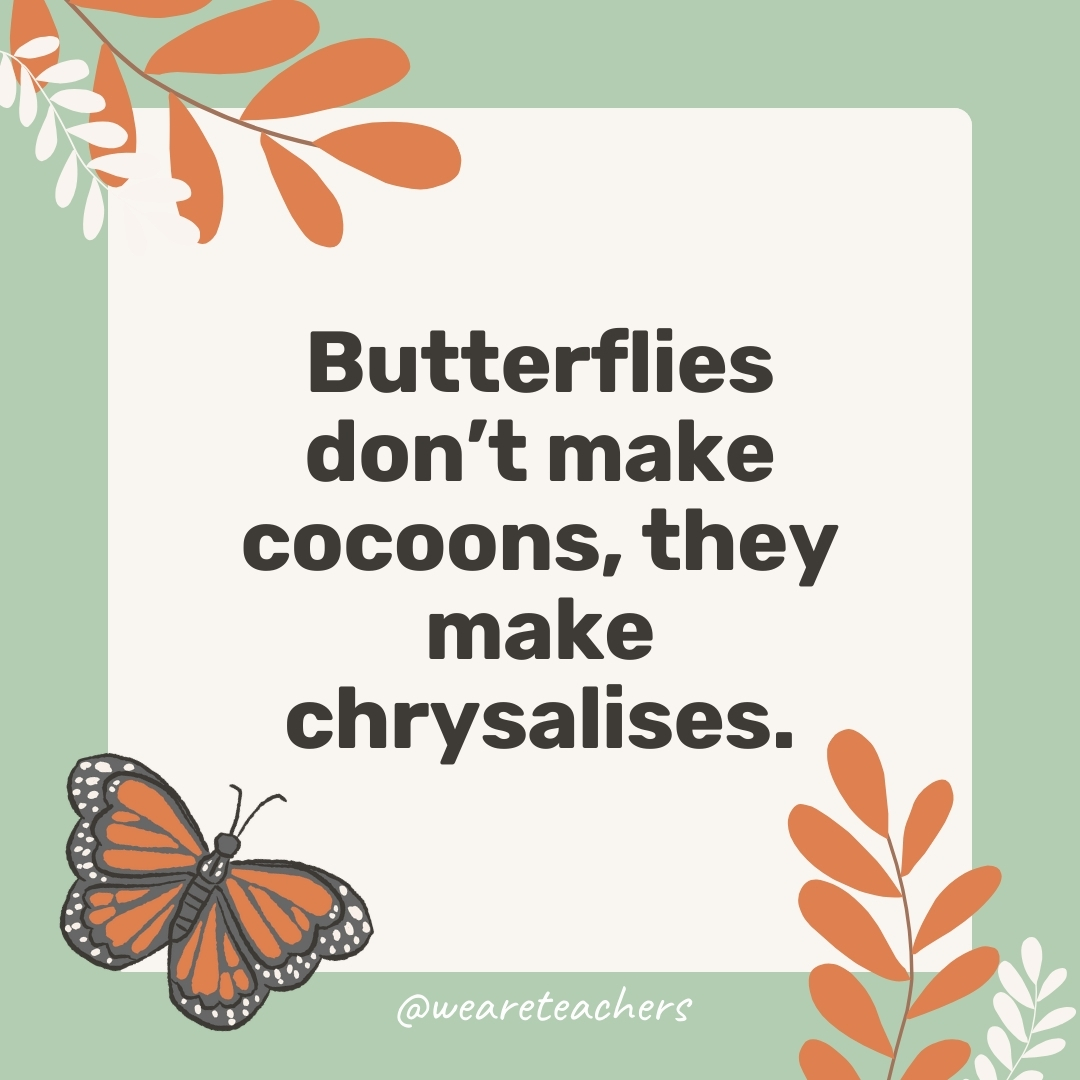
Some moths spin cocoons of silk, sometimes including leaves and twigs.
24. Butterfly wings get their colors from scales.
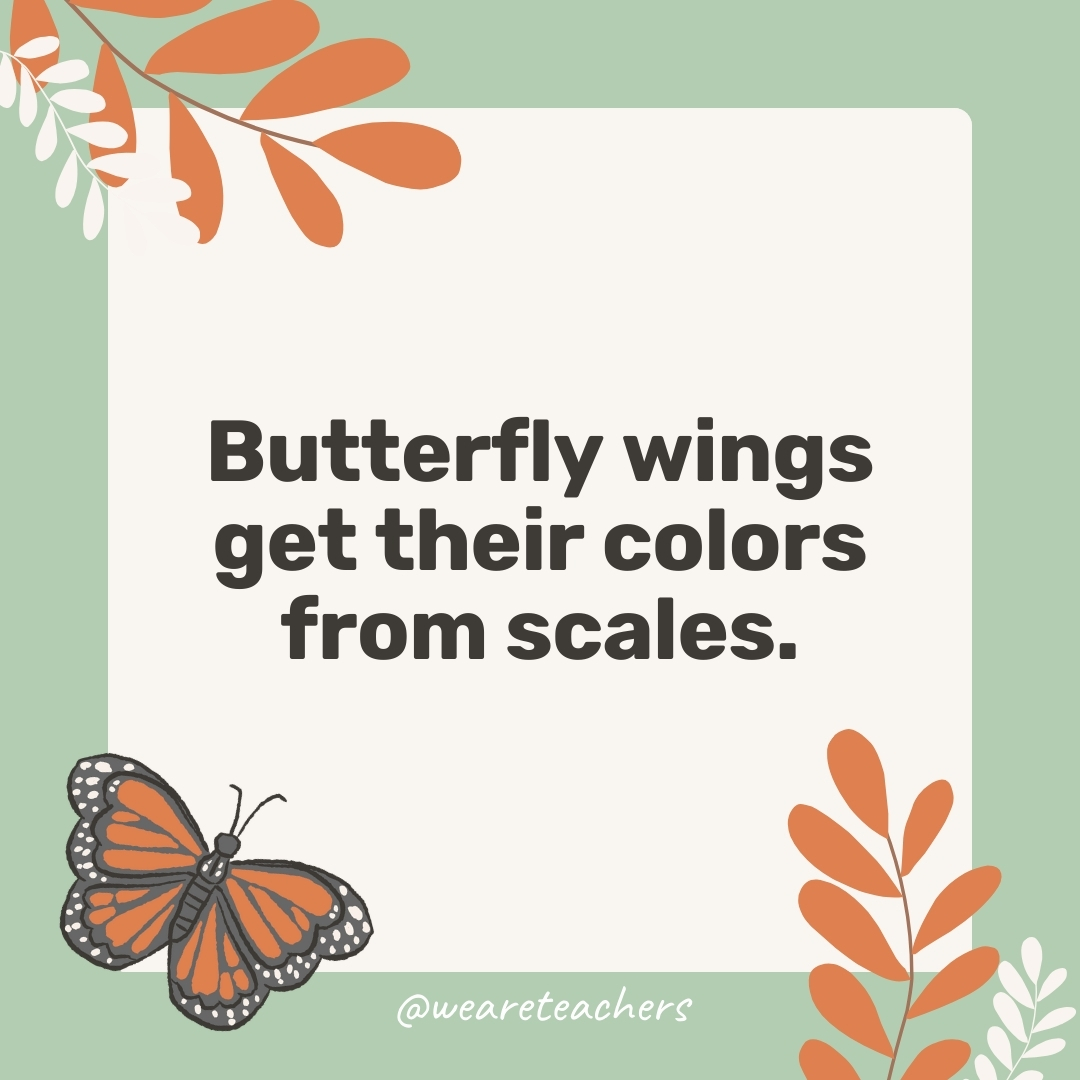
The wing membrane underneath is clear, and some butterflies have clear wings.
25. Touching a butterfly’s wings is a bad idea.
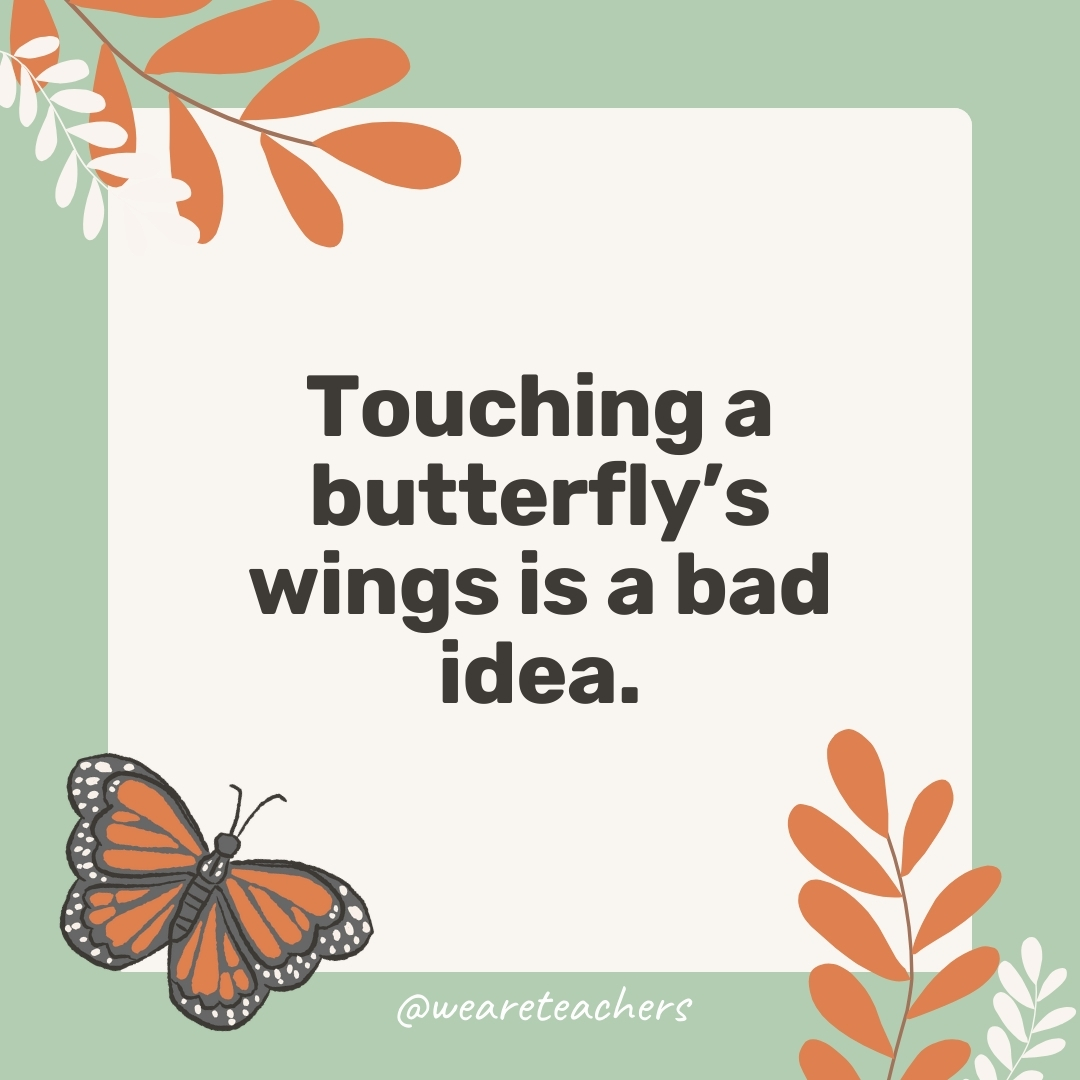
When you touch them, you rub off the scales, which butterflies need to fly, and the scales don’t grow back.
26. Bright-colored butterflies are often toxic to predators.
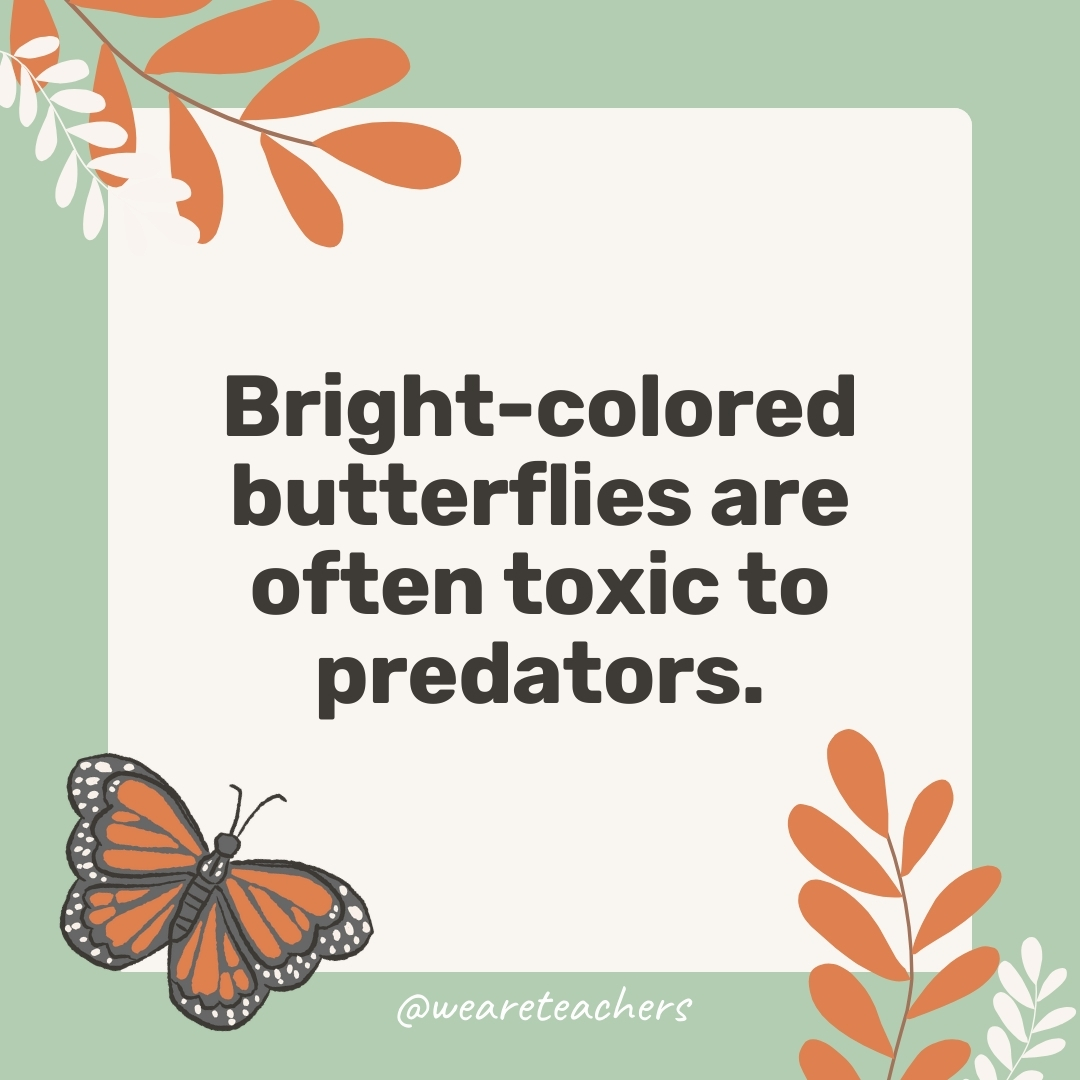
Even if they aren’t, they usually taste bad enough that predators won’t eat them.
27. Butterfly wings are usually bright on top and plainer underneath.
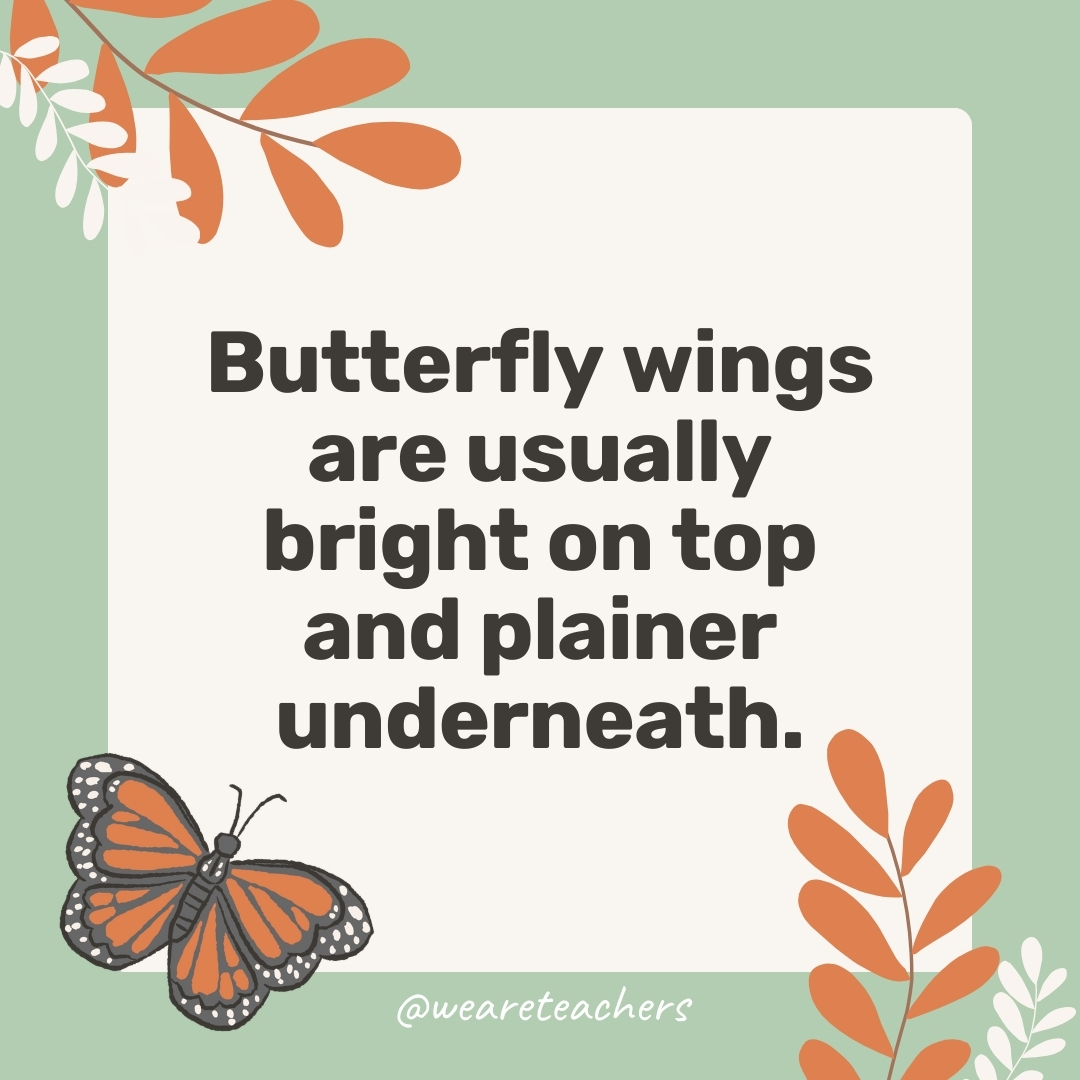
When they close their wings, they can easily blend in and disappear.
28. The first butterflies appeared just over 100 million years ago.
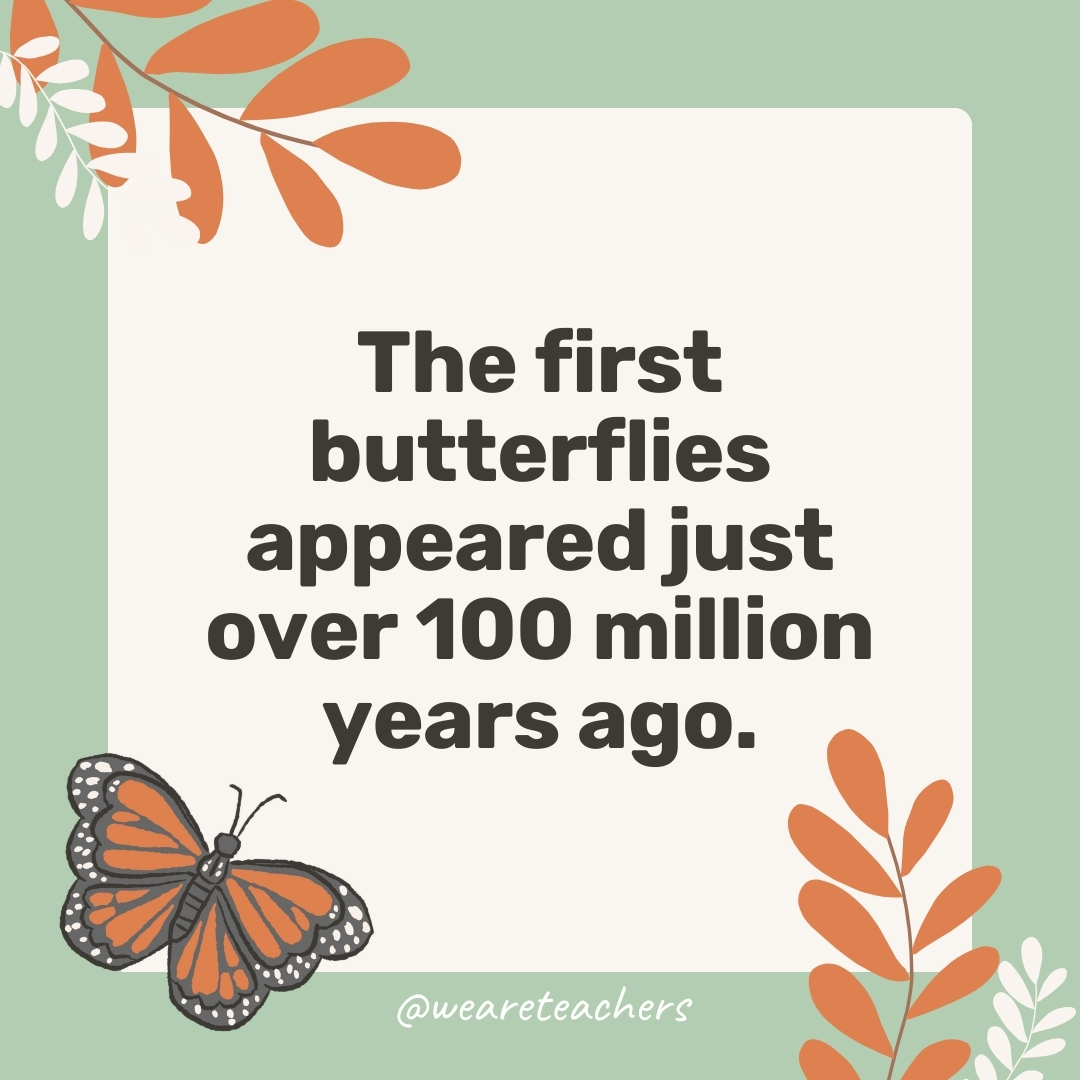
Moths came first, and butterflies evolved from those ancient insects.
29. Seven states have made the monarch butterfly their official state insect.
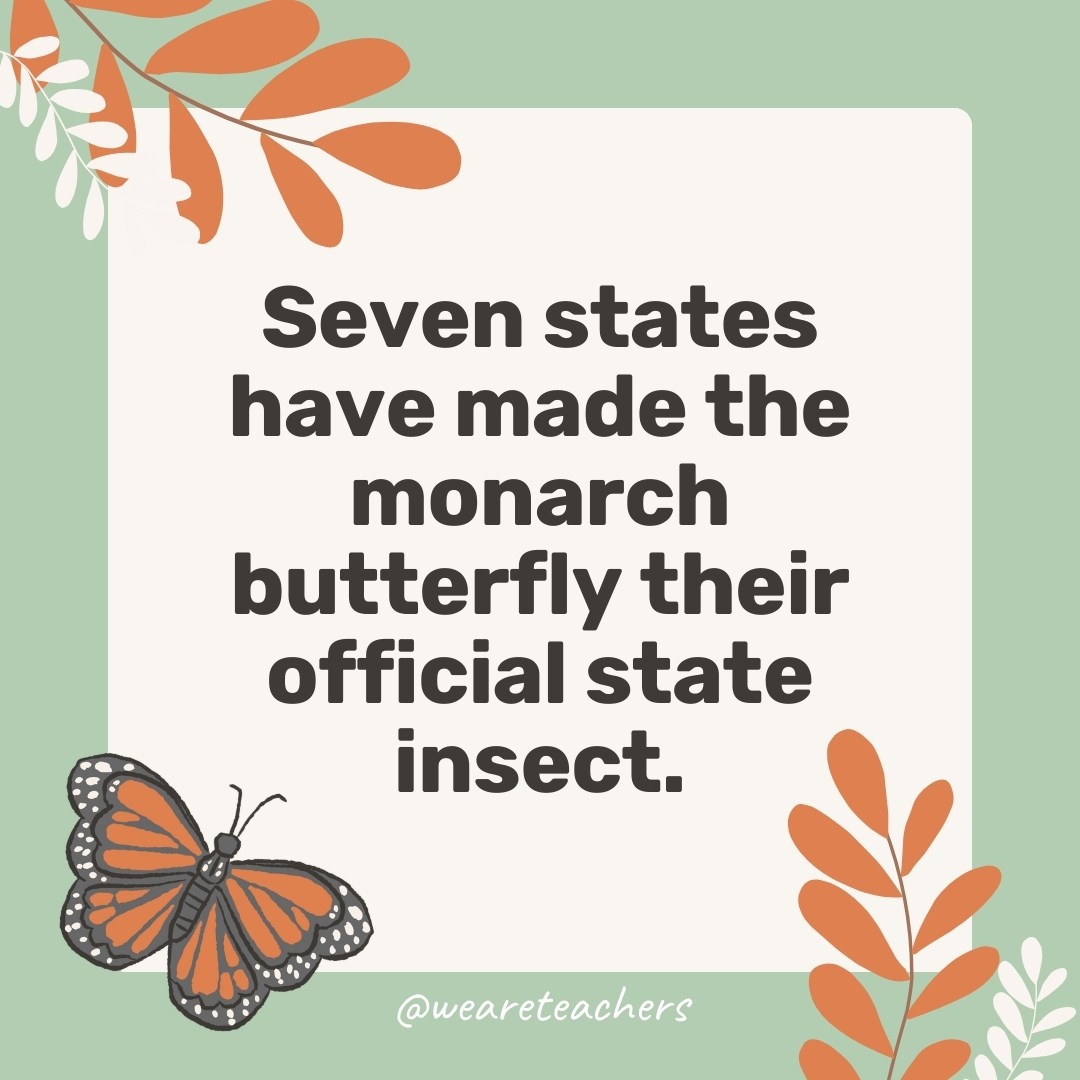
They are Alabama, Idaho, Illinois, Minnesota, Texas, Vermont, and West Virginia.
30. Though some butterflies can hear low-pitched sounds, they mostly rely on sight.
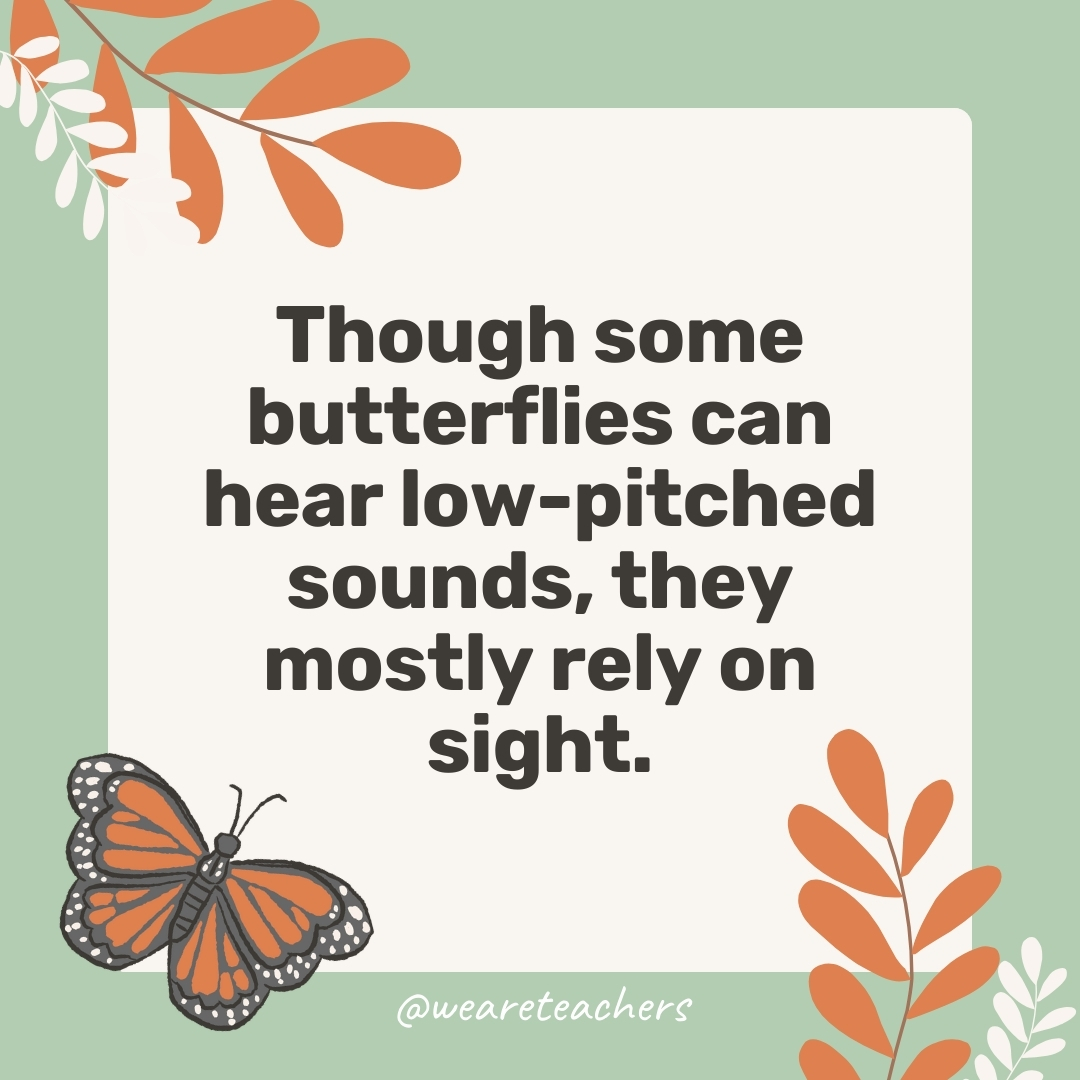
Their compound eyes can see colors humans can’t, such as ultraviolet.
31. Butterflies breathe through little holes in their bodies called spiracles.
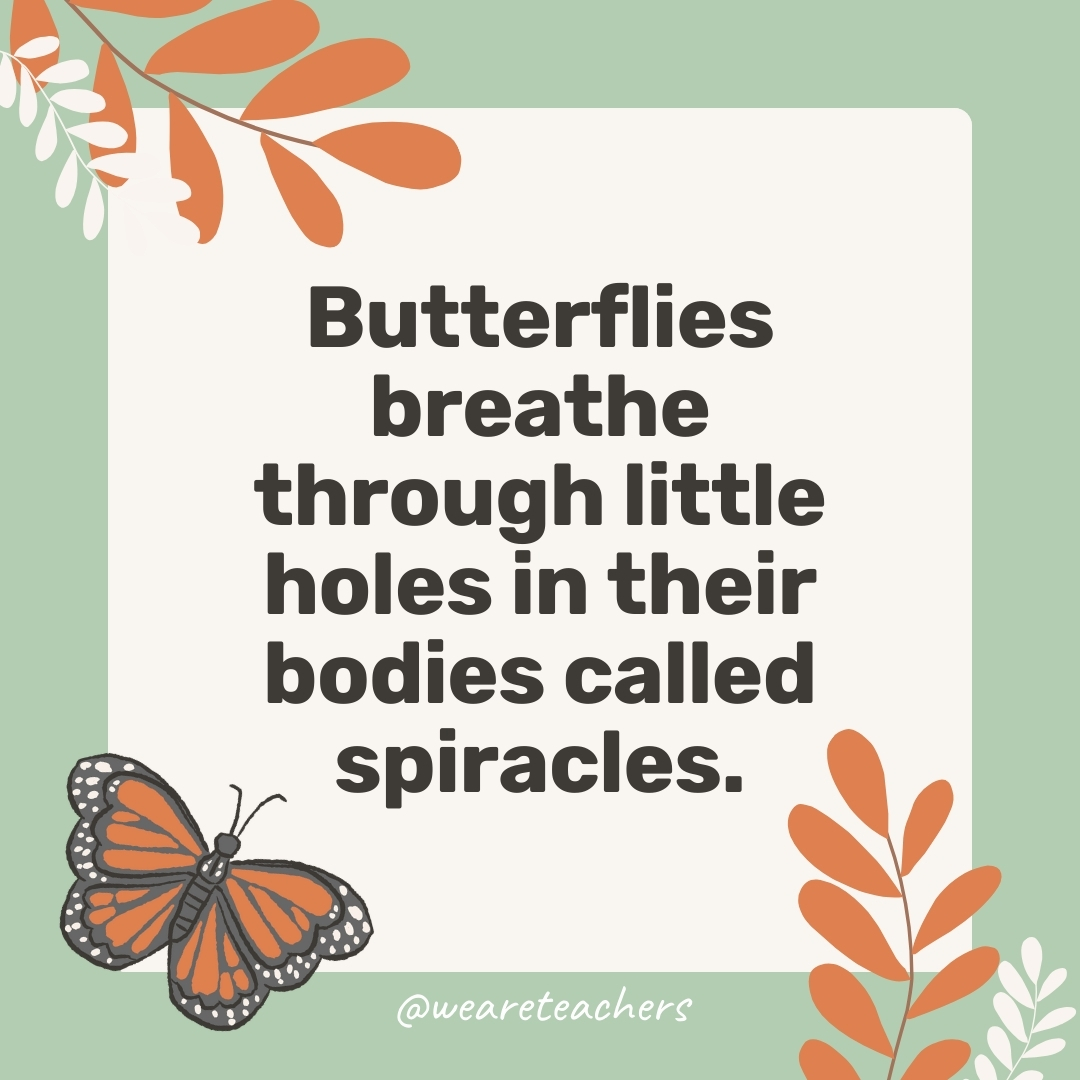
They don’t have or need lungs.
32. Butterflies don’t sleep, but they do rest.
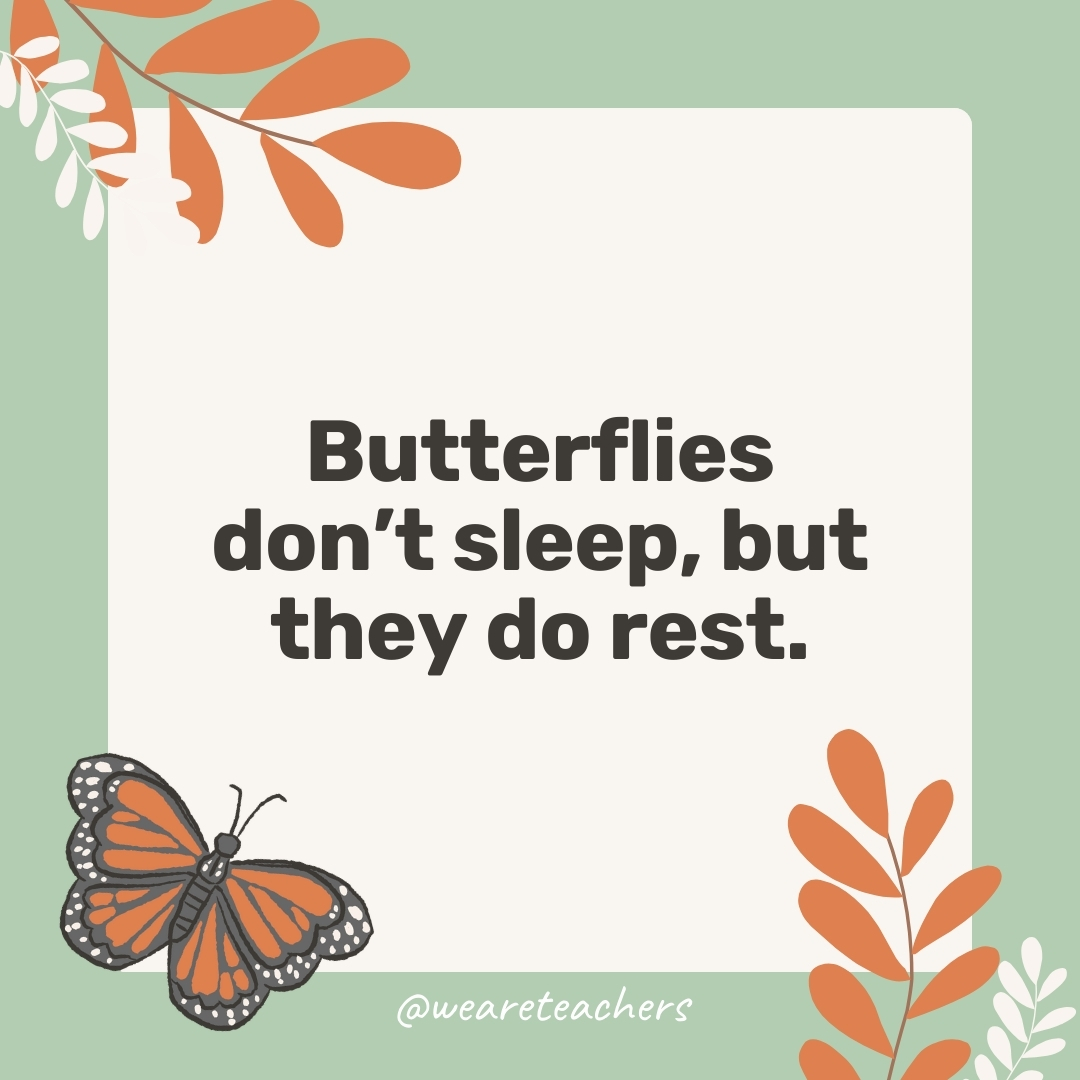
At night or during rainy weather, they hang with their wings folded closed to conserve energy.
33. Butterflies have many predators, including birds and reptiles.
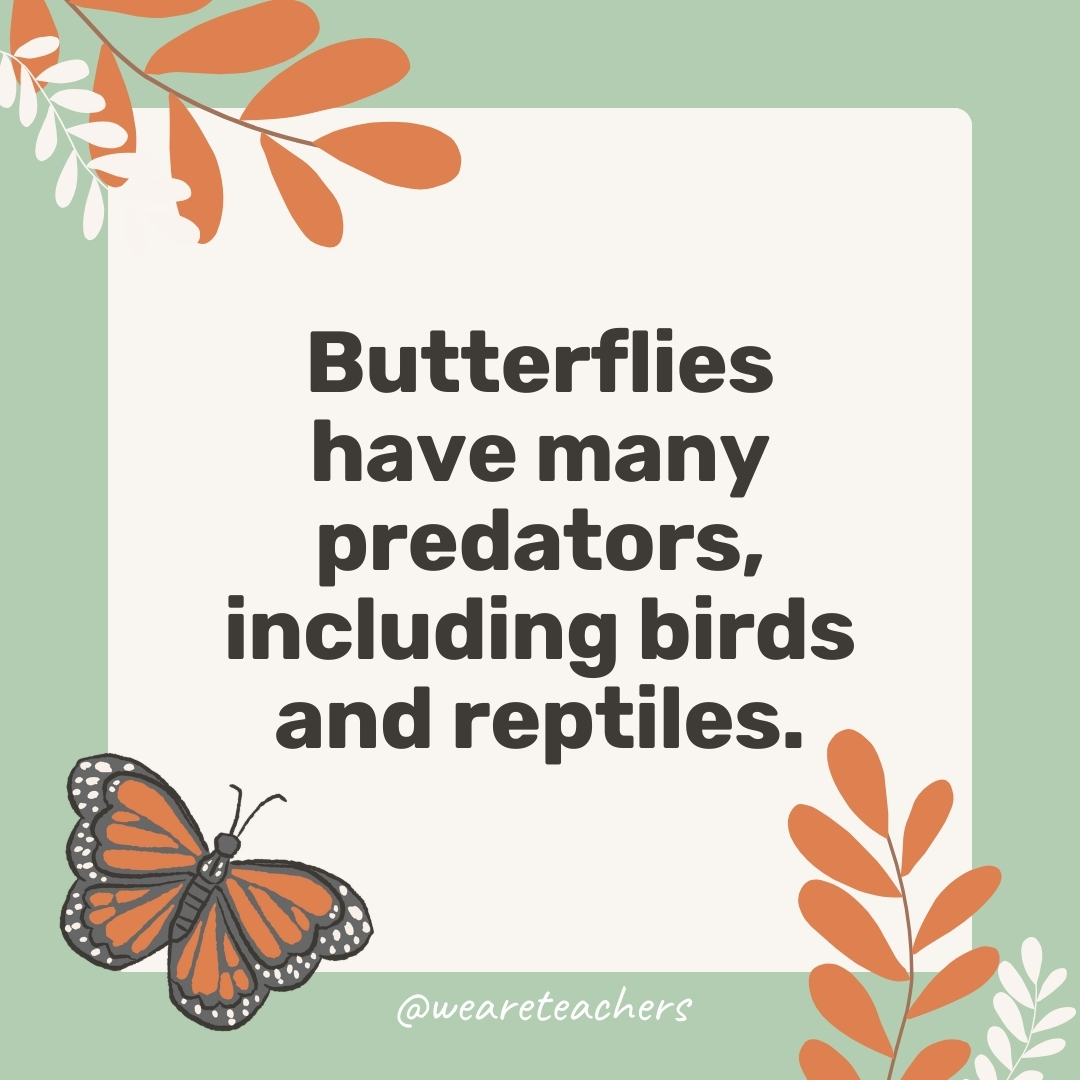
Other butterfly predators include lizards, snakes, monkeys, frogs and toads, spiders, dragonflies, and wasps.
34. Some butterflies have patterns called eyespots on their wings.
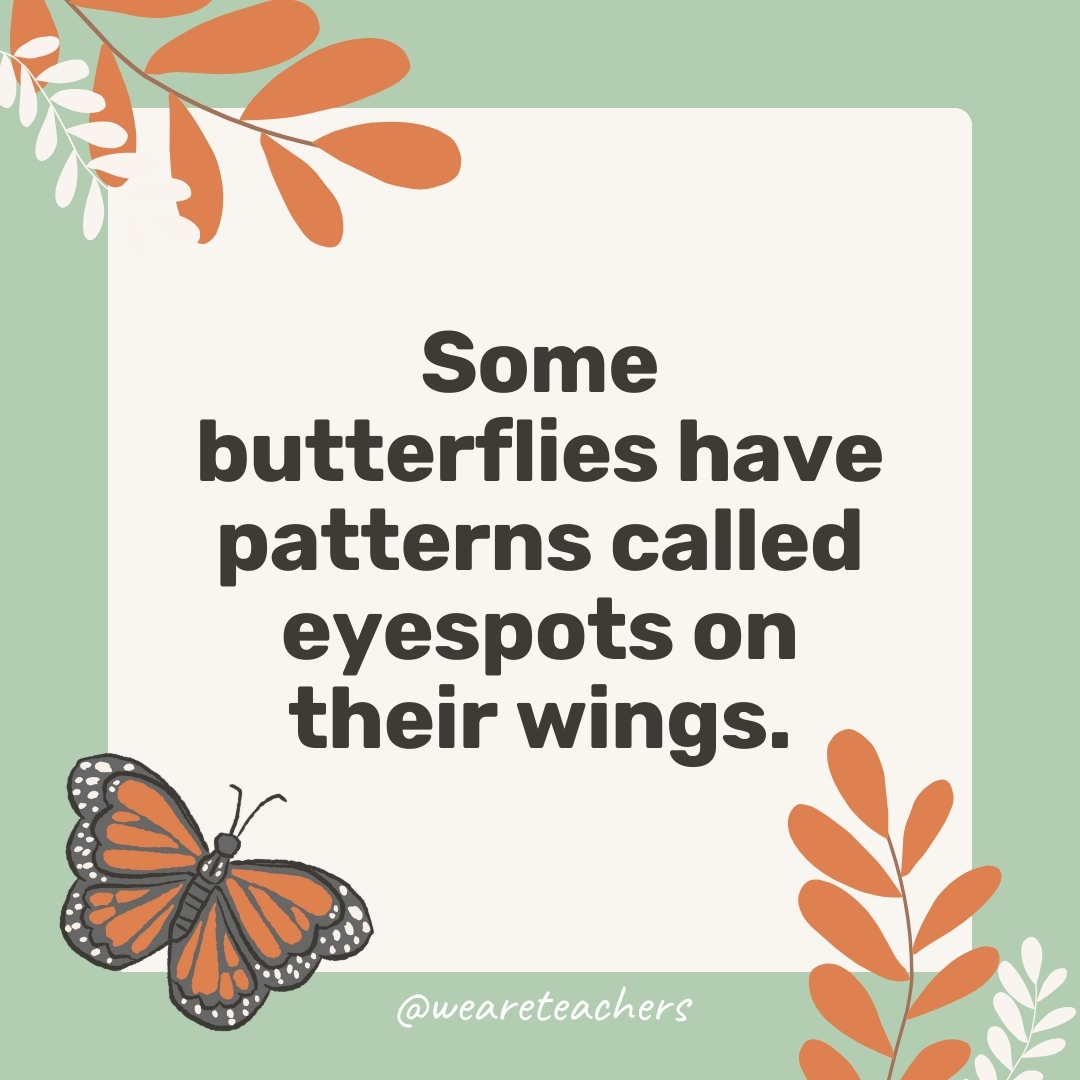
These spots confuse predators into thinking they’re much bigger animals, too dangerous to attack.
35. Groups of butterflies are sometimes called a “flutter.”
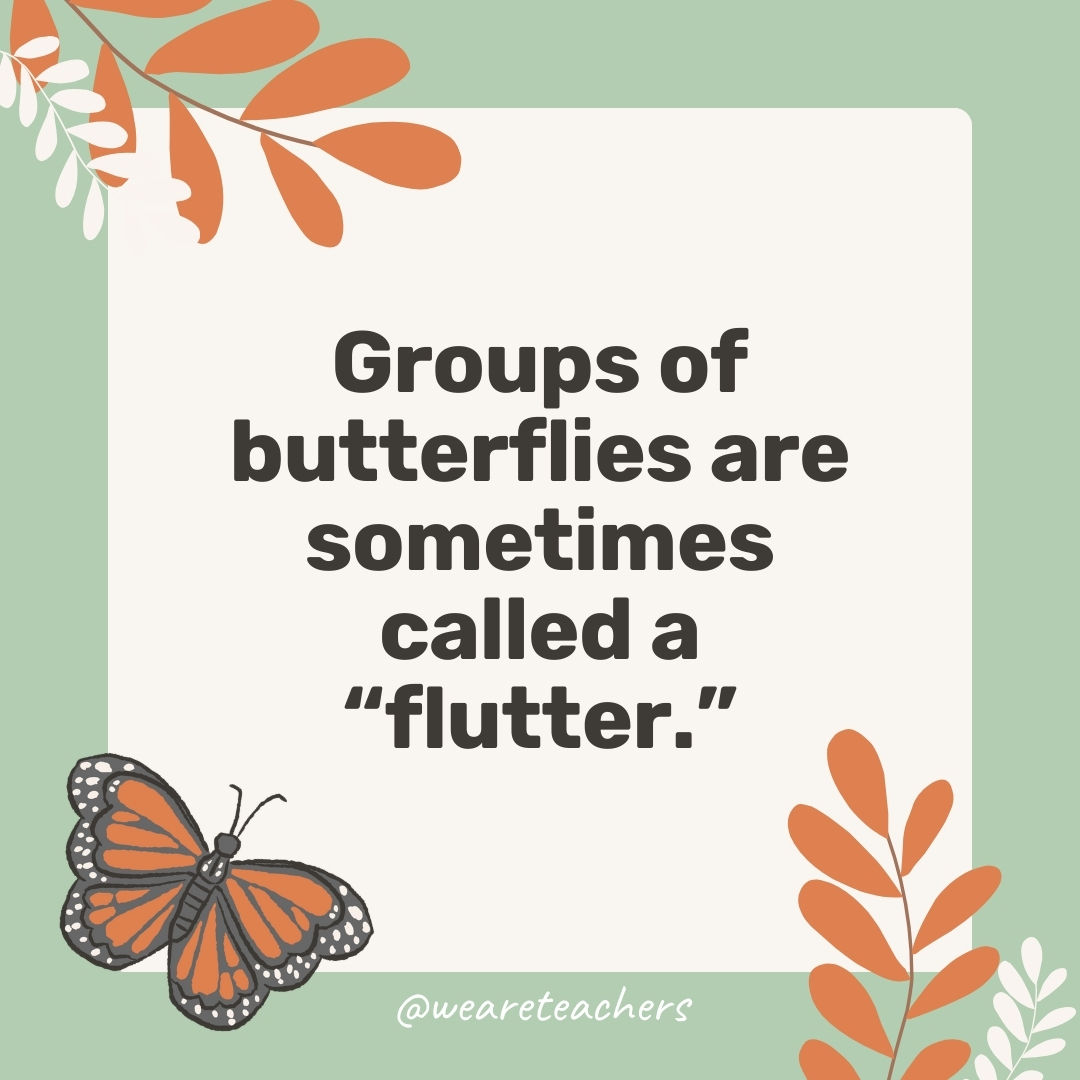
They can also be called a swarm, flock, or kaleidoscope.
Like these fascinating facts about butterflies? Don’t miss Animal Facts That Will Amaze You!
Do you know any more interesting facts about butterflies? Come share in our We Are Teachers HELPLINE group on Facebook.

